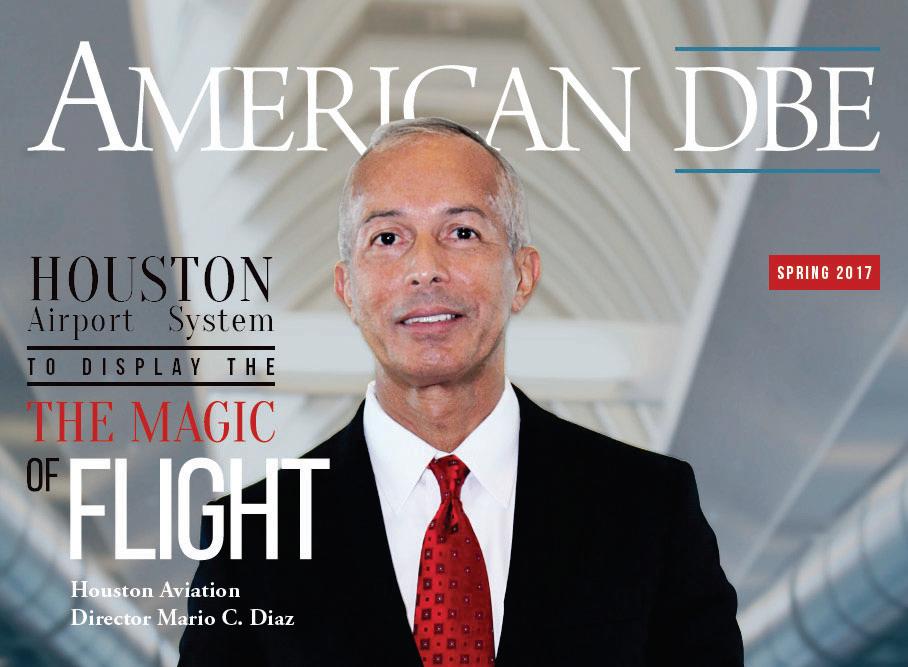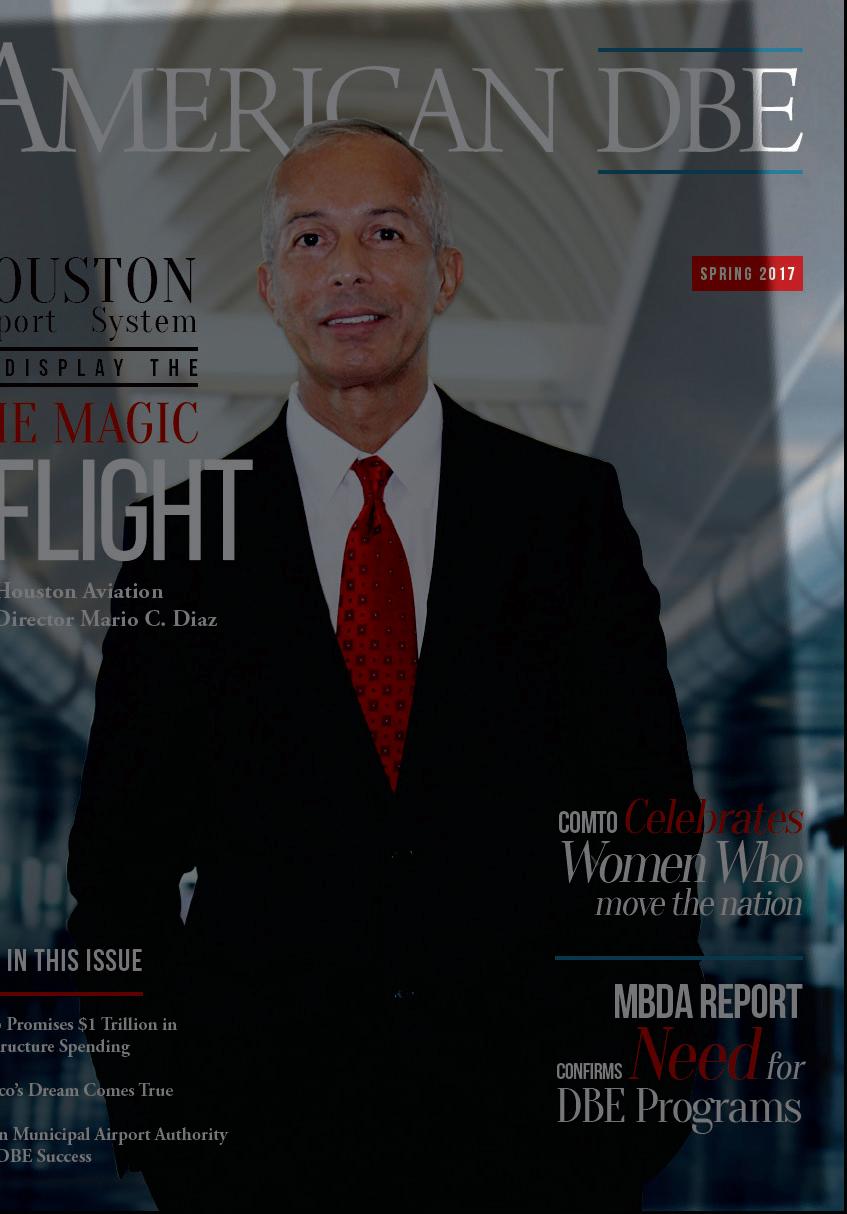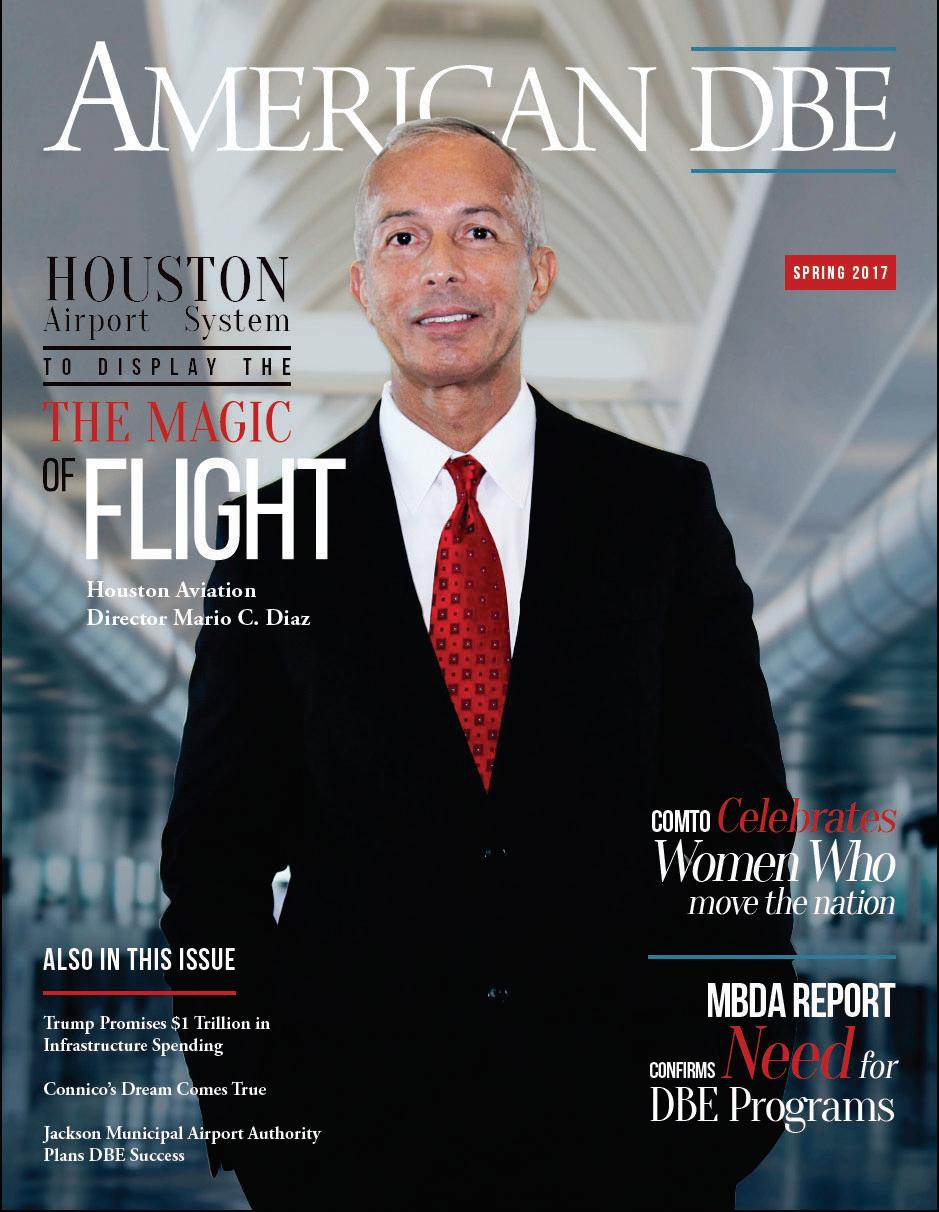








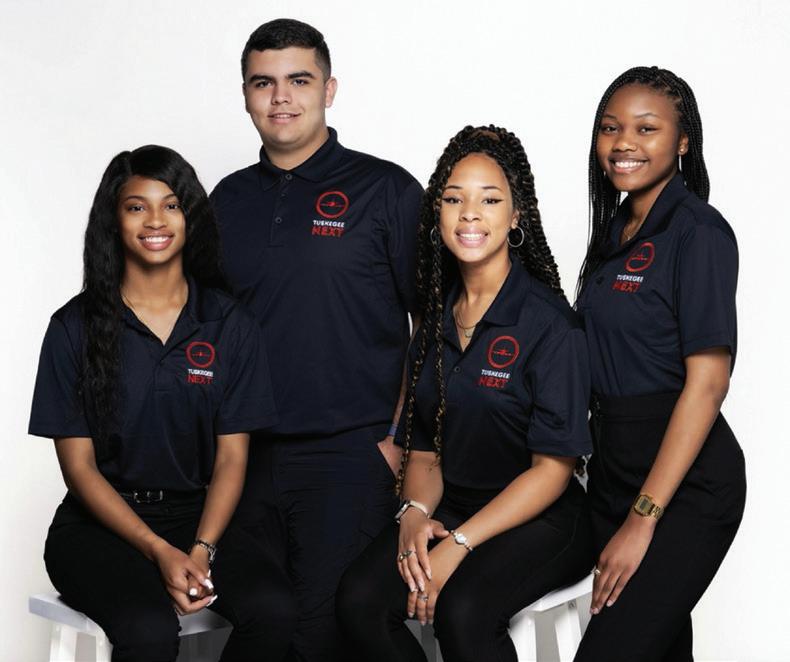
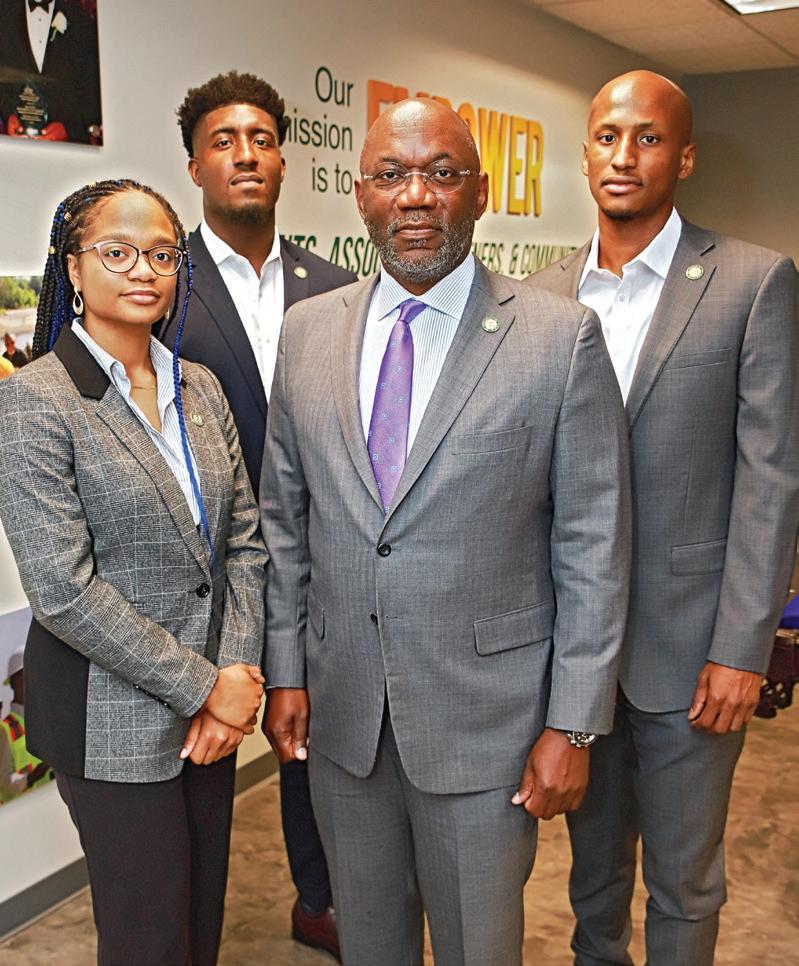
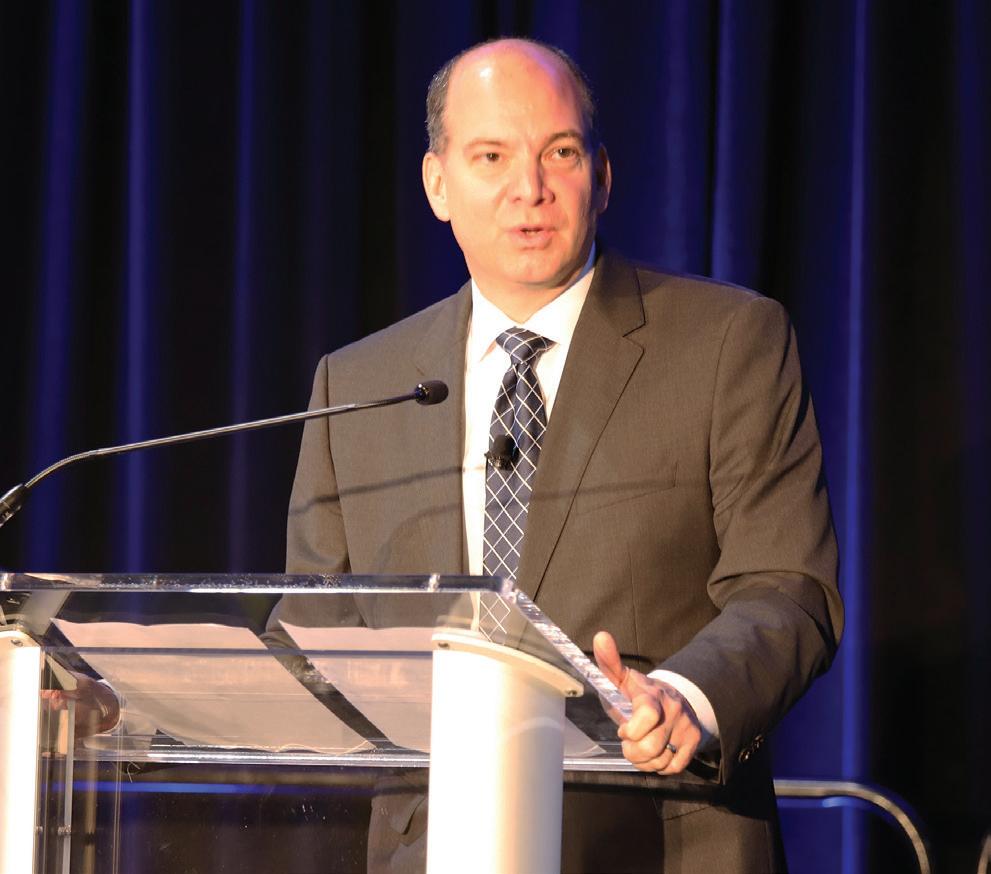

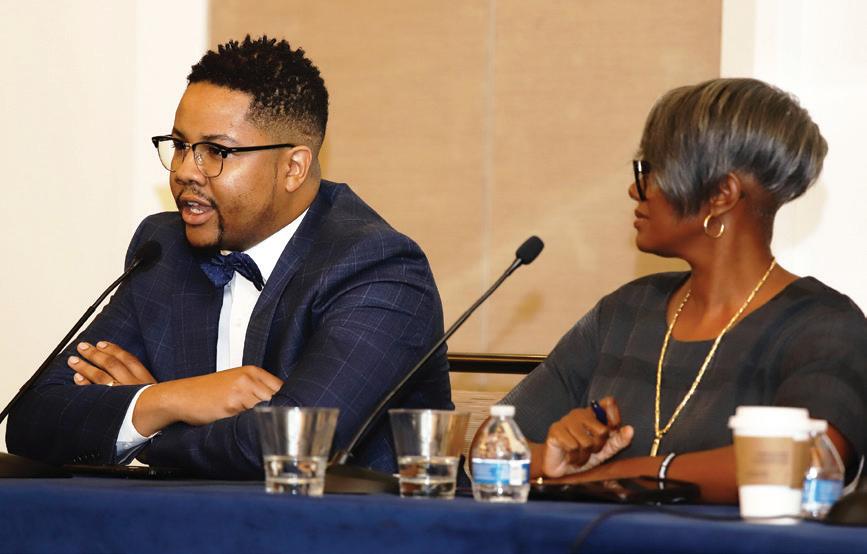
American DBE Magazine is the premier industry resource for individuals and stakeholders who work in the infrastructure, construction and transportation industries. American DBE Magazine is published quarterly and distributed in all 50 states— plus Puerto Rico and the U.S. Virgin Islands—to DBE program administrators, business owners, and professionals in the Aviation, Highway Construction and Public Transit industries. Advertisting
American DBE Magazine is published quarterly in Fall, Winter, Spring and Summer editions. The annual subscription rate is $24.99 including online editions, special industry reports, and four issues: single copy list price is $6.99 plus postage originating from Raleigh, North Carolina.

My career includes several years as an M/W/DBE program administrator and now more than a decade as a DBE business owner. The one consistent passion I have witnessed from professionals on both sides of the inclusion arena is the desire to create a better future for the next generation coming behind them. I have found that program administrators worth their salt realize they are not only working to enhance the lives of diverse entrepreneurs, but also the lives of the employees, families and communities where these companies operate. Likewise, I have found that diverse entrepreneurs worth their salt understand that these programs aren’t created solely for their personal benefit, but also for the benefit of those they employ and the communities they represent.
This issue of American DBE features organizations striving to pay it forward and clearing a pathway for the next generation by serving as examples of success and by expanding opportunity within their sphere of influence. Our cover story features Corporate Environmental Risk Management (CERM), an environmental and engineering consulting firm based in the Metro Atlanta
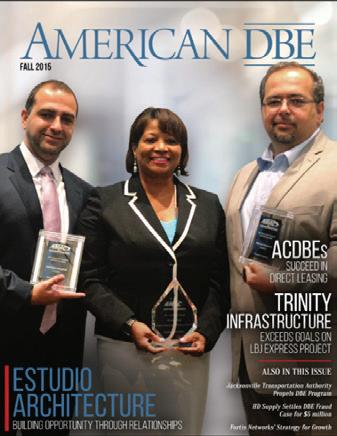

area. Managing Director Albert Edwards lives by the mantra “where people walk together a path is made.” He has led CERM to become one of the largest DBE consulting firms in the Southeastern United States. CERM adds to the lives of its 130 employees by consistently performing meaningful projects; and the company prides itself on helping build the next generation of diverse professionals through a Job Shadowing Program for high school students and an internship program for diverse college students.
Other feature stories in this issue highlight Clark Construction Group (Clark) and Tuskegee NEXT. The Clark story shares how the company is leveraging its success as one of America’s leading construction firms into creating opportunities for diverse firms. The company recently announced a new policy of setting a goal of at least 15% diverse business participation on any project completed by the company, even if there is no inclusion requirement by its clients. Our story on Tuskegee NEXT highlights a Chicago-based non-profit agency with the mission of creating more minority pilots in the airline industry. Tuskegee NEXT offers a free – but intensive – summer program for high-performing college students to help them secure a pilot’s license and begin a path to becoming a commercial pilot.
This issue’s DBE Power Player is DIGroupArchitecture, led by President and CEO Vince Myers. Notably, Myers is a secondgeneration architect leading his firm into the future by building a thriving firm in the New Jersey market while seeking to inspire other young professionals entering the architecture




industry. Our DBE Program Spotlight article shines light on the work of the Kansas City Area Transit Authority (KCATA) to strengthen its M/W/DBE Program as the agency helps expand the region’s KC Streetcar system.
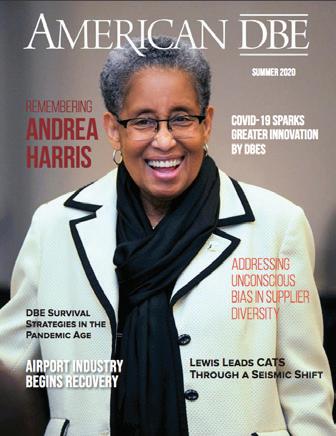
This issue also highlights the SeattleTacoma International Airport and its Director Lance Lyttle. In his role, Lyttle leads the airport – ensuring diverse businesses participate in the array of opportunities at SEA, ranging from its concessions program to its large capital development plan. This issue also features the success of Lane Construction in building relationships with diverse firms as subcontractors for over $2 billion in projects in the Mid-Atlantic Region of the country covering Virginia, North Carolina and South Carolina; and the Transit story highlights April Rai, President and CEO of the Conference of Minority Transportation Officials, as she completes her first year leading the organization into the post-pandemic era. Rai plans to expand COMTO’s impact by launching new local chapters and expanding the CITY Intern program to prepare the next generation of transportation professionals. Please enjoy this issue of American DBE Magazine
A. Russell, Publisher American DBE MagazineIn 2020, Messer Construction Co. spent $278M, 21.2% of our purchases, with certified M/WBE businesses across our regions in the Midwest and Southeast.








“Character is what you do when no one is watching,” is a quote often attributed to legendary UCLA basketball coach John Wooden. The statement can be expanded to embrace that character also includes what a person (or an organization) does when they do not have to do anything at all. Clark Construction Group, LLC is striving to demonstrate its character as a company that is committed to expanding opportunities for small and diverse business partners, even when it is not required to win
a project or new business opportunity. The organization shared this commitment with more than 300 potential business partners at its first Small and Diverse Business Expo in June 2022.

The event brought together small and diverse business companies with a contingent of Clark Construction staff, other prime contractors, and government agency representatives from across the Greater Washington, D.C., region to create a “onestop shop” for education, networking and
business opportunities. Clark Construction hosted the event free of charge at the Walter E. Washington Convention Center in Downtown Washington, D.C.
“We wanted to create a platform for outreach that expands the opportunity for us to meet and learn about small and diverse companies that we haven’t done work with before; and allow them to meet and network with some of our large business partners,” Clark Construction Group EVP of Corporate Affairs Jay Grauberger said.
Participants learned about certification and business opportunities with agencies like the Virginia Department of Transportation, The District Department of Transportation, Maryland State Government and Prince George’s County Maryland Government. In addition, more than 60 prime contractors – many that are currently working on Clark Construction projects – participated in oneon-one matchmaking sessions in a robust resource hall with vendor booths from many of the government agencies participating in the event.
A main component of the event featured Clark Construction staff presenting a wide variety of existing or potential projects across the region that present partnership opportunities with small and diverse companies. “There are a lot of opportunities in the private and institutional sector in our region, and in the infrastructure sector with the Bipartisan Infrastructure Bill as it flows through the states,” Grauberger said.
Clark Construction CEO Robert Moser set the stage for the event by announcing the company’s expanding commitment to small

and diverse firms in 2022. Moser said, “We are making a pledge and a voluntary commitment to 15% small and diverse participation on our projects that don’t otherwise have small business requirements.” This commitment includes the company’s private projects, which often may not have a goal determined by the owner. The policy aims to make Diversity & Inclusion a core business practice, instead of a program only implemented when required by a client’s requirements. Grauberger said: “We have been on a long journey in supporting small and diverse businesses going back over 16 years, and we want to reach that next level in supporting these firms. We never want to be satisfied.”
Clark is delivering 1950 Opportunity Way and 2000 Opportunity Way, two office buildings that begin Phase I of a new transit-oriented development that expands Reston Town Center in Fairfax County, Virginia.

One strategy for achieving success in building relationships with business partners is helping them get prepared to do business with Clark Construction. The expo featured two sessions led by Clark Construction SVP and Small Business Liaison Officer Wes Stith called “Building Together with Clark.” The session introduced new firms to the initial steps to becoming a business partner, including the vendor registration and prequalification process, as well as the business certifications used to identify small and diverse companies. The session also identified practical tips and
recommendations for companies considering working on major construction projects.
Stith shared information about the highly successful Clark Construction Strategic Partnership Program (SPP). The SPP is an 8 to 10-month training program for small and diverse companies seeking to build their capacity and hopefully do business with Clark Construction. The program meets one evening per week and is structured like an executive MBA program. Students must apply to participate in the program
and their applications are reviewed by a panel of Clark employees. Once admitted, students complete a variety of courses such as Business Planning, Strategy, Finance & Accounting, Bonding, Understanding Contract Terms, and Project Management. The program helps firms improve the skill-set needed to manage a growing construction company. Grauberger said: “Many firms understand their technical specialty, like drywall or painting, but may lack the business management experience. This program helps develop those skills.”
Grauberger has served as a judge for the SPP capstone project, a bid competition where teams of students prepare and present a mock bid on a major construction project before several judges that are members of Clark’s senior management team. The capstone project forces student to use all the new skills learned during the program and allows them to gain experience in making a business presentation. Clark has sponsored the program for 15 years, and over 1,200 firms have completed the grueling program – with many firms ultimately becoming business partners on Clark projects. “The satisfying part of this whole effort is to see that companies have been able to expand their capacity and experience, and have become integral parts of our project teams,” Grauberger said.
Four SPP graduates shared their business experience during the expo at the “Insights for Entrepreneurs” panel discussion held during the luncheon program. The entrepreneurs shared their unique perspective on strategies to grow a construction business through partnering with major construction companies like Clark Construction. While each company provides different products or services, they were similar in recognizing the importance of networking and building relationships. “If you want to start marketing yourself and connecting with people, one thing you should do is get into the SPP program, because it is well worth your time,”
THG Companies President and CEO Cheo Hurley said.

The four companies also stressed the importance of building a solid team of professionals to help guide their business during the growth and expansion process. The professionals include a strong construction accountant, competent lawyer, and an experienced banker to provide the expertise a company needs during the growing stages. “Sometimes entrepreneurs are introverts and
try to grow just by bidding on projects and responding to IFBs (invitations for bid). You also need to build your team of professionals and your business relationships. Sometimes it’s not about the low number, but about having good relationships with people,” United General Contractors President Casey Gwei said.
This sentiment exemplified Clark’s goal for the day; to bring together small businesses, resource providers and prime contractors to create relationships, share information and facilitate new business opportunities. Clark plans to host the event annually based on the success of the inaugural program in 2022. Grauberger said the Small and Diverse Business Expo is an extension of the company’s overall mission to make an impact on communities where the company does business. He continued, “Our motto is Building What Matters Together, and to do that we have to build the capacity of small and diverse companies.”



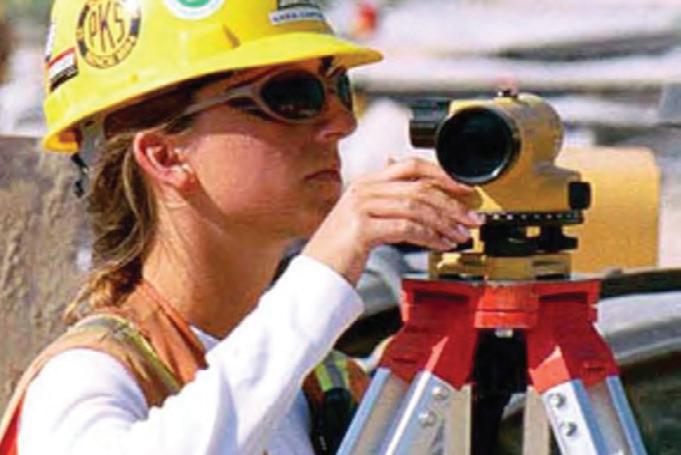
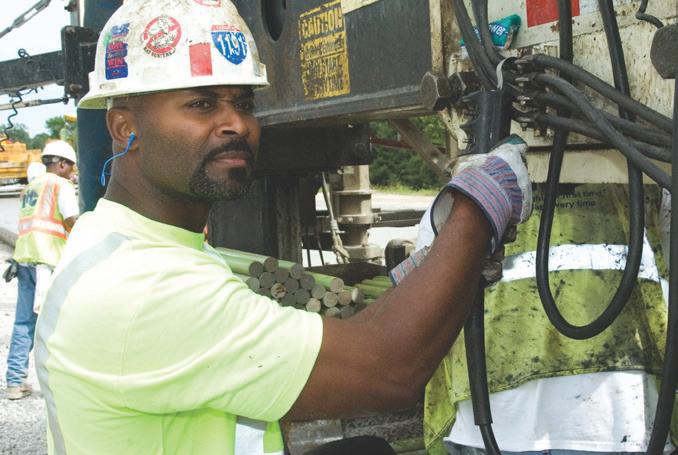
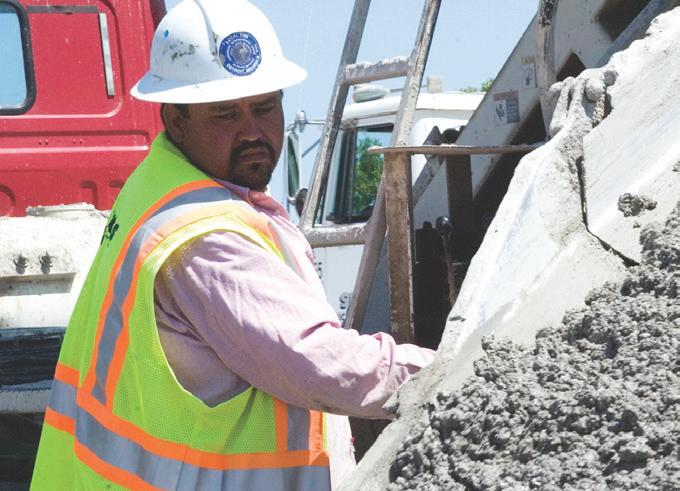
In 2015, Steve Davis saw an opportunity to remediate an industry-wide challenge in aviation while sending underresourced populations soaring — literally.

As the Chairman of the DuPage Airport (DPA) in Chicagoland, he was aware of an upcoming pilot shortage. Due to the mandatory retirement age of 65, the industry would need about 10,000 additional pilots to keep pace with demand.
Despite the obstacles and challenges, Chairman Davis was inspired to make a noteworthy impact. All the while, he sought to honor the legacy of the Tuskegee Airmen (Black military airmen) while paying tribute to his father and hero, a World War II veteran. From there, Chairman Davis founded the Tuskegee NEXT Foundation.
Committed to empowering underrepresented and marginalized communities throughout Chicago and beyond, Tuskegee NEXT is a 501(c)(3) nonprofit that offers the services and support aspiring pilots need to break into the aviation industry. Christened by eight original Tuskegee Airmen, the foundation provides aviation education, career path assistance, and life skills training. Along the way, students learn either manned or unmanned aircraft. Upon graduation, students not only earn their Private Pilot
License (PPL), but also pay it forward to future generations through a moral obligation that Chairman Davis instilled into the foundation. Although based in Chicago, Tuskegee NEXT is open to students from all areas, with some aspiring aviators coming from as far as St. Croix, one of the U.S. Virgin Islands. Likewise, the foundation serves all under-resourced youth regardless of their ethnic background. As stated by one of the original Tuskegee Airmen, “We’ll never do to them what they did to us.”
To date, nearly 60 students have successfully come through Tuskegee NEXT, setting their sights on the sky in a mosaic of capacities, such as commercial, cargo, military, and medical career paths. One way or another, the program puts graduates in the cockpit. While some are aspiring trainers, others choose to return to Tuskegee NEXT in a more direct capacity through the fellowship program.


Although the foundation is centered on flight, students learn pivotal skills that positively change the trajectory of their lives
both personally and professionally. According to Madison “MJ” Saunders, a 21-year-old Tuskegee NEXT graduate from the class of 2021, “I learned how to build connections and developed a lot of networking skills. I’m not the same person that I was.”
With seven successful summers and counting, Tuskegee NEXT’s flagship Summer Aviation Program boasts a 90% success rate for students earning their PPL, an impressive milestone considering the prohibitive costs and time demands of flight. Most alumni are in their early 20s, lending way to the potential for long and fruitful careers in aviation. Typically, students participate in the program during their freshmen, sophomore or junior years in college.
The program takes place in person with high-caliber instructors from the Illinois Aviation Academy (IAA). During the program, students eat, sleep, and breathe aviation, staying in dormitories at Judson University just 45 minutes outside of Chicago. Each day, they learn the ins and outs of flight, build their confidence, and get up into the air as much as possible. On average, earning a PPL takes six months or longer. Through Tuskegee NEXT’s Summer Aviation Program, students earn their PPL in eight to 10 weeks.
Before earning their place in the Summer Aviation Program, students undergo a competitive selection process. The age requirement for applicants is 18 to 20 years old. Each year, applications open on August 1st. From there, students proceed to interviews with the selection committee in January, moving onto ground school from March to May. As a prerequisite to flight, ground school takes place both online and in person. Earning admittance into ground school, however, does not guarantee acceptance into the program. Students still need to pass myriad benchmarks, including a written exam. For students who meet all of the requirements, the Summer Aviation
Program starts in June. Admitted applicants are not individuals who simply view flying as a hobby; they are passionate, aspiring aviators with an intense desire to ‘take to the skies.’
With a mosaic of aspiring aviators from all backgrounds, Tuskegee NEXT is best represented by graduates, many of whom are on track to become full-fledged pilots. According to Alex Miller, a 2019 graduate, “I saw an incredible opportunity to take a large step forward toward my ultimate goal of becoming a commercial pilot.”
At the same time, others are continuing to support cadets along their aviation journey, such as James Redmond, a 2016 graduate who stated: “I experience a lot of different elements of the aviation industry. Here, I was able to network and meet successful individuals who changed my own perception.”
There are three primary ways to support Tuskegee NEXT. As a 501(c)(3) nonprofit, all funds go toward directly and indirectly supporting these future aviators. Donations can be made online at www.tuskegeenext. org/donate.
Second, Tuskegee NEXT is always in need of pilots and aircraft as they expand. Whether someone has past or present flying experience or owns their own aircraft, they can learn more and connect with Tuskegee NEXT through the group’s contact page at www.tuskegeenext.org/connect.
Last, Tuskegee NEXT is on the lookout for dedicated volunteers interested in supporting their fundraising efforts through the Red Tail Ball and Aviation Day events. For more information, volunteers can reach out at info@tuskegeenext.org. Interested attendees and sponsors can purchase tickets and learn more online.
As the Summer Aviation Program and foundation as a whole expand, Tuskegee NEXT will continue to rely on its strategic partners
such as the Tuskegee Airmen Chicago “DODO” Chapter, IAA, Organization of Black Aerospace Professionals, Aviation Community Foundation, and AeroStar; building awareness and encouraging aspiring aviators to apply.
Tuskegee NEXT not only preserves the legacy of the Tuskegee Airmen, but also contributes directly to future generations by putting new and exciting opportunities in the aviation industry within reach.


Austin Commercial is committed to recognizing, embracing, and supporting workplace diversity. As a construction industry leader, Austin takes pride in creating minority economic opportunities.

Corporate Environmental Risk Management (CERM) Founder and CEO, Albert Edwards, had a vision of building a company that would lift others while striving for success from the moment he and business partner Marcus Reese launched the company in 1995. The two young professionals dreamed of having the ability and resources to help others reach their dreams, while pursuing their own dreams as entrepreneurs; and this possibility served as their proverbial “why” for leaving comfortable salaries at a Fortune 500 corporation to kick off their own firm from a one-room office in the South DeKalb Business Incubator in Atlanta.
Generally speaking, most entrepreneurs are not thinking about how their business will serve others when starting a company. The typical entrepreneur’s central focus is
primarily on how they will survive the first months and years in business, and how they will build a customer base to grow the company to profitability. However, for Edwards and Reese, while these considerations were important, they were the means toward the end goal of helping their community and supporting causes important to them. “Our vision was always about community impact; it was never about material gain or popularity. Our deal was to be impactful,” Edwards said.
Tragically, Edwards had to carry this vision forward alone after his childhood friend and co-founder passed away after a battle with cancer in 2017. But he has carried their vision and the CERM family forward, leading the company to extraordinary success as one of the preeminent minority-owned engineering,

environmental and program management firms in the nation.

While CERM began as an environmental program management firm focused on the commercial real estate sector, the firm has expanded over the years to become a vertically integrated civil, environmental, and program management firm that provides consulting and contracting services to infrastructure, energy, and commercial clients throughout the Southeast. CERM is headquartered in DeKalb County, an Atlanta suburb with branch offices in Tampa, Florida; Orlando, Florida; and Mobile, Alabama.
CERM’s rise to success has been a steady and intentional journey over the past 27 years. Like most companies, the firm has endured challenging times; however, fiscal discipline, strong client relationships, and structured growth has allowed the firm to weather the storms of the business cycle to become a sustainable organization, positioned to continue its growth into the future.
Since starting the company with only Edwards, Reese, and a dream, CERM is now a multidisciplinary team consisting of 130 professionals and growing. “Every day we safely provide more than 1,000 man-hours of services to our clients across the Southeast,” Edwards said.
CERM’s growth is linked to leadership focusing on pursuing a detailed business
plan and a strategic plan communicated throughout all levels of the business. The planning process keeps the firm’s goals and objectives in the minds of employees and sets clear expectations for leaders and managers throughout the company. “We have achieved a growth rate of more than 20% a year for the past several years, even during the pandemic, to include being named the U.S. Department of Commerce’s National Construction Services Firm of the Year in 2020 and receiving the Maynard H. Jackson Legacy Leadership Award in 2021,” Edwards said.
A strategic focus has helped the firm build strong relationships with major clients and business partners across the southeastern United States. A few strategic clients include the Hartsfield-Jackson Atlanta International Airport, DeKalb County Government, Metropolitan Atlanta Rapid Transportation Authority (MARTA), the City of Mobile, Comcast, and Southern Company. In addition, CERM routinely partners with some of the largest engineering and project management firms in the world.
“We are a solid technical services company, and we have an ongoing focus and cadence around quality,” Edwards said. The focus on quality is consistent throughout the organization and is driven by a diligent adherence to metrics centered around resource optimization, risk management and customer service. These metrics are applied across the organization with leaders being held accountable for the performance of their teams along these lines. “We hold a quarterly
All Hands Meeting to bring the team together and review our performance and make sure everyone is on the same page with where we are going,” Edwards said.
The company also uses a STEP Analysis process (social, technological, economic, and political) to ensure the company is moving in the right direction and to assess both new opportunities and potential threats on the horizon.
Building a solid reputation for exceptional quality with clients and business partners is helping CERM continue its growth in 2022. The firm has expanded into emerging industries like renewable energy, telecommunications, cannabis, and select commercial development; and its growing scale and expertise continues to attract new business opportunities. CERM opened its Tampa, Florida, office in 2021 to keep pace with growth, and plans to open a second office in the Greater Atlanta region to better serve the rapidly growing metropolitan area.
CERM’s business model directly ties its ability to impact the community to the firm’s profitability and growth. This approach fuels Edwards’ passion and keeps him focused on taking the steps necessary to grow the company. A large part of the firm’s success comes from finding and hiring the right talent to help the firm serve its clients well and continue to grow. Since both Edwards and Reese were graduates of HBCUs (Historically Black Colleges and Universities), they were aware of the untapped talent available at these institutions; and recruiting professionals with an ideology similar to theirs became a key strategy in their hiring process.
This intentionality and culture of inclusion makes CERM an attractive employer for young, diverse professionals, especially African Americans and other disenfranchised communities. The firm has professionals from over 20 HBCUs across the country including institutions such as Tuskegee University, Hampton University, Florida A&M University, North Carolina A&T State University, Alabama A&M, Southern University, Jackson State University, and others. “We have nearly every HBCU in the Southeast represented on our team, and we have team members from across the Caribbean and countries such as
Ethiopia, Ghana and Nigeria,” Edwards said. This intentional strategy gives CERM the opportunity to hire talent that other companies may overlook, while at the same time nurturing younger professionals and giving them the opportunity to thrive and support their families. Edwards said: “I had no idea of the impact job creation would have on my experience as an entrepreneur. The ability to help anchor families has been a driving force, and to see the impact on a family that a scalable career opportunity has for someone like a single parent, or a person that is the oldest of five siblings, is an amazing experience for me.”
CERM’s signature outreach program, called the Shadowing Program, strives to replicate the impact a summer engineering program sponsored by the U.S. Army Corps of Engineers had on the lives of Edwards and Reese when they met in high school. CERM’s Shadowing Program invites high school and college students to their headquarters to gain exposure to working in a professional setting and to encourage students to consider careers in science, technology, engineering, and math (STEM). CERM’s success with the Shadowing Program also led to the creation of an internship program to offer opportunities to underrepresented college students to gain hands-on, resume-building experience in the environmental and civil engineering industry. “Supporting youth by replicating what I gained through that summer program is so important to me,” Edwards said. “If there is a heaven and a hell; hell for me would be not doing programs like this because of the road I’ve traveled and the distance I’ve come – and the things we’ve been able to do for the families we serve as a result.”
As another way of giving back to the community, CERM created the CERM Legacy Foundation in 2020 to support STEM education in underserved communities. The foundation has developed partnerships with Edwards’ alma mater Mississippi Valley State University, Alabama A&M University and Jackson State University to support students in engineering. These partnerships allow CERM to provide advisory support to the school’s engineering and business management programs, provide internships to students, and offer employment opportunities for graduates.

CERM also supports students attending technical colleges by partnering with Atlanta Technical College and Georgia Piedmont Technical College to provide financial assistance and internship opportunities to students. CERM’s team is working with college leadership at both institutions to develop curricula for technical certificates and
Associate degree programs. These shorter training programs will help those interested in the field get to work sooner and will bridge the growing gap in the available workforce, especially for construction managers and inspectors. Edwards knows supporting these organizations not only helps students and the industry succeed, but also provides a pipeline of talent into the company’s workforce.

Edwards leads the firm’s efforts to be an exceptional corporate citizen and industry leader. CERM is an active supporter of the Atlanta Big Brother & Big Sisters organization, Habitat for Humanity, and others. Edwards is also currently serving as chair of the Atlanta Business League and chair of the Council for Quality Growth. Although he joined these organizations to expand his professional network, he has used the experience to contribute to the Atlanta business community by assuming leadership roles and advancing the organizations’ missions. “I grew up in the Atlanta Business League professionally, so when they asked me to become a part of the board, I had to say yes,” Edwards said.
Other emerging leaders in the company have followed Edwards’ example to assume roles in community and industry organizations. CERM Chief Operating Officer Terrell Gibbs, Ph.D. serves as the chairman for Georgia Piedmont Technical College Foundation; and Senior Program Manager Shelley Lamar serves as a Foundation board member for Atlanta Technical College. Principal Engineer/ Engineering Group Manager Kenneth Fluker, PE is slated to chair of the American Council of Engineering Companies of Georgia Board of Directors; Program Management and Construction Management Group Manager
Rodney Given serves on Clayton County’s Water Authority Board, and Project Manager

Darryl Edler, Jr. is chair for the Council for Quality Growth’s Emerging Leaders Initiative.


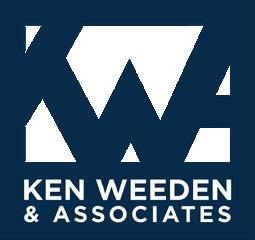


“Professional organizations provide a platform for people to get to know you and understand your value system – and for you to demonstrate who you are,” Edwards said.
As the company continues to grow, Edwards is in the preliminary stages of making succession plans and evaluating leaders who can lead the firm into the future. He plans to turn over his day-to-day leadership role to a new president in the next 18 months while he limits his role to CEO, before ultimately moving to the role of board chair, as others develop the ability to lead the organization. Edwards said, “The leaders here, by their sacrifice, focus, vision and leadership, provide me with the autonomy to focus on developing meaningful partnerships with clients and partners across the Southeast, and across the nation.”
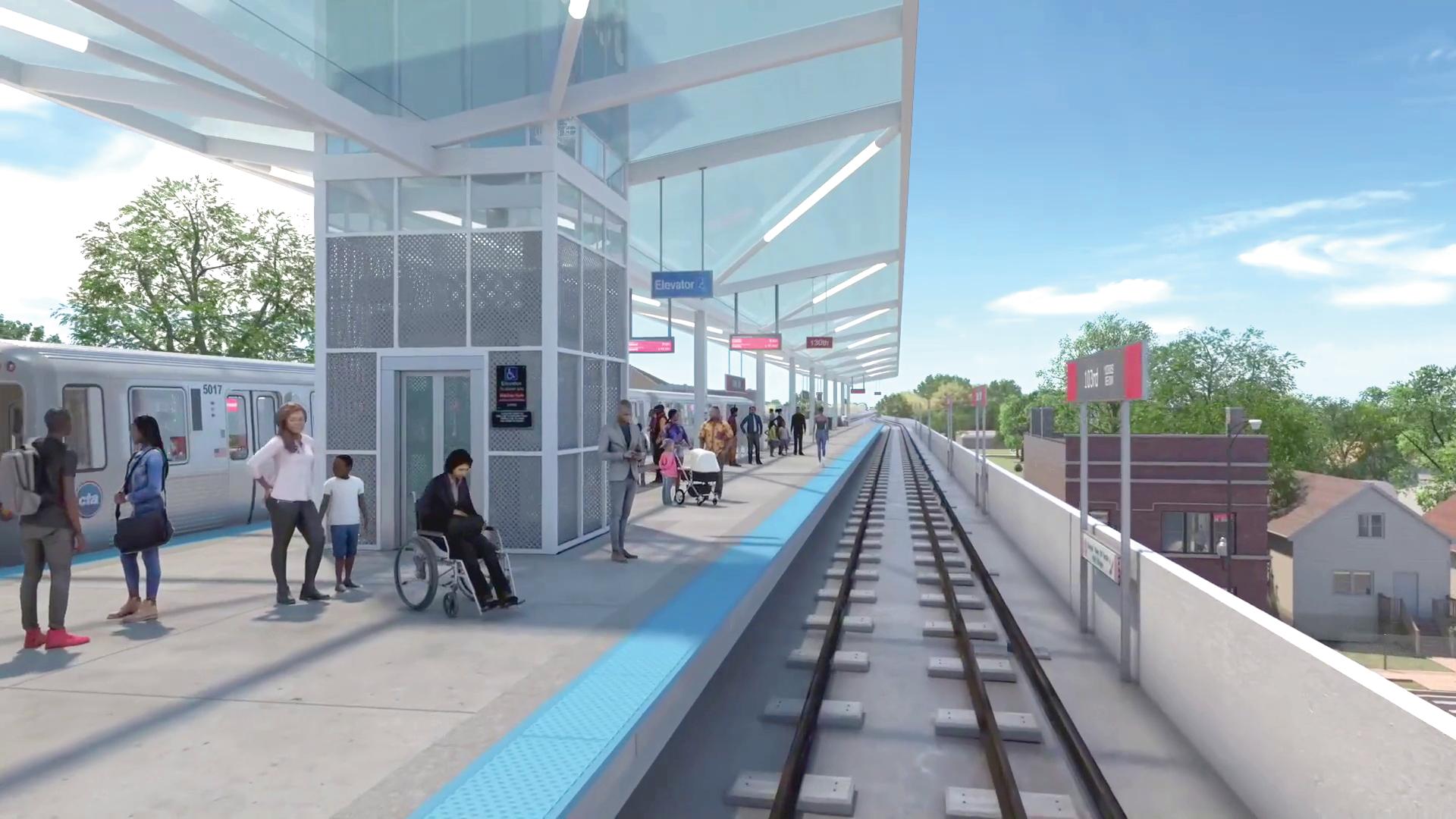




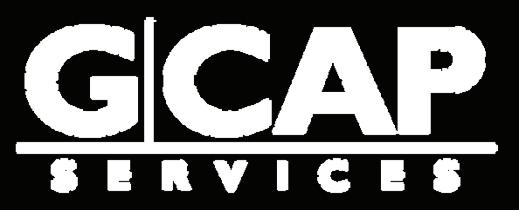
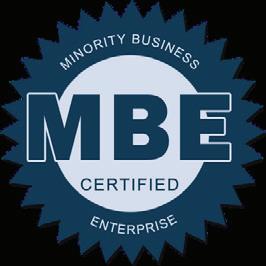
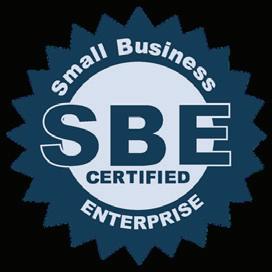
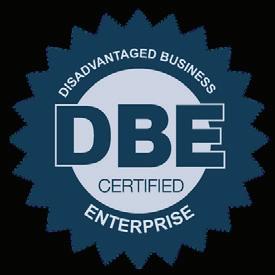

Vince Myers has fond memories of peeping into the study to watch his dad, Harvey Myers, sketching or diagramming at his drafting table or poring over architecture books. He also vividly remembers his dad coming home late after taking night classes in Brooklyn, New York, to achieve his goal of one day designing and constructing buildings and providing a better life for his family.
The elder Myers was never formally educated but possessed a love of and penchant for creating things. So, in 1969 after becoming one of the first Black men in the state of New Jersey to earn an architecture license, he opened an office on Nassau Street in Princeton, New Jersey, which had a proliferation of notable architects.
Harvey Myers was well-respected around town and enjoyed his fair share of business
– relatively speaking for a Black man back then. It was pretty much a given Vince would follow in his footsteps, because while growing up and watching his father devour all things architecture, he developed a fascination for the profession. He also came to realize hard work was required for those who wanted to make a better life for themselves, especially people of a certain hue.
In 1984 after graduating from Syracuse University with a bachelor’s degree in architecture, Vince went to work for his father and began learning the profession’s many facets, including construction and marketing. By now Harvey had split with his partners, and father and son enjoyed working together for nearly two decades at E. Harvey Myers Architects, a company that during its heyday employed 12 people.
Roughly 16 years after Vince joined his dad’s company, the state of New Jersey was sued for allegedly not providing fair and equal access to education statewide. The lawsuit specifically targeted facilities, saying those in the inner-city schools weren’t as good as some in other areas. As a result, the state decided to spend $8 billion on mostly new construction with a concentration in the poorer school districts, which came to be called Abbott districts as an acknowledgment of the man listed as a plaintiff in the suit.
An emerging company called NJ k-12 Architects, which small but reputable firms comprised, was created in response to the state’s decision to spend billions on schools it had neglected; and one of the founding members approached Harvey Myers about joining.
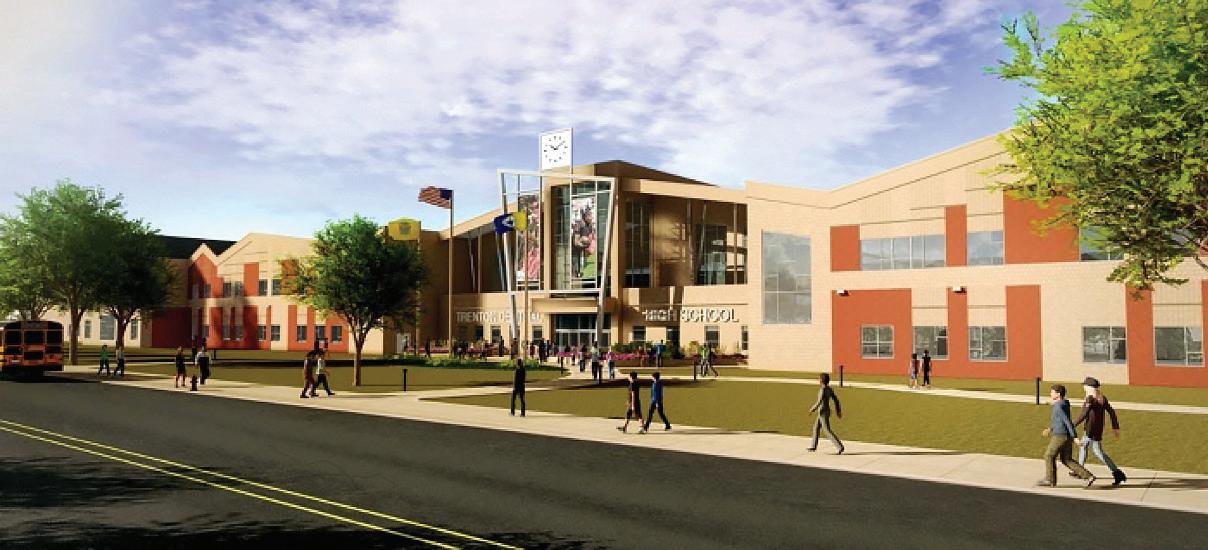
“He told my dad he knew he cared about the schools in the poorer districts, as he himself did, and he wanted dad to be a part of NJ k-12,” Vince said. “Dad came to me and asked me what I thought about it, and I told him this was something good for us to do and made sense on a whole lot of fronts. At the time there were just five or six of us at our firm, and by joining NJ k-12, we became part of a much larger firm that had about 50 people collectively.”
Despite advising his dad to say yes to his colleague’s offer, Vince acknowledged not being sure NJ k-12 Architects would be taken seriously.
Vince shared that group members initially wondered how the State of New Jersey would perceive their team and whether they could convince officials they were a big firm with an unlimited pre-qualification rating.
State officials were initially skeptical. NJ k-12 Architects wasn’t a household name like many of the other firms with which they were familiar, and – given the scope of the projects they needed completed – there was little room for error.
“The state was like, ‘What is this?’” Vince said of the initial reaction by state officials to NJ k-12 Architects. “Ultimately over time we convinced them that we were a viable firm with licensed architects, with connections and great reputations with the school districts where they needed projects completed.”
The firms comprising NJ k-12 Architects weren’t all minority, but that didn’t stop Vince or his dad from recognizing the impact joining the group could have on them. What was most important for each of the firms,
he said, was landing contracts they likely wouldn’t have been awarded on their own and proving to state officials they were just as competent as the “big guys” at the larger, better-known firms.
“Once we explained to state officials that we were five, viable firms working independently of each other that had merged to form a larger company, we wound up winning the second-largest number of contracts in the state of New Jersey,” Myers said. “During that time, we probably landed eight to 10 major school projects totaling over $500 million in construction value.”
For example, NJ k-12 Architects was awarded two of the state’s largest high school projects – the Cicely L. Tyson Community School of Performing and Fine Arts in East Orange,
and Phillipsburg High School in Phillipsburg – among others. Myers said those two schools totaled more than 300,000 square feet and cost more than $125 million each.
“So, you can see that that experiment, as it were, paid off enormously,” he said. “As a result of that, to this day we’ve continued a very strong relationship with the New Jersey School Development Authority over the last 15 years, completing multiple large-scale projects through their design-build.”
Father and son worked with NJ k-12 Architects – while also maintaining their own company – until 2006 when Vince became a founding member of DIGroupArchitecture. After nearly four decades in the business, the elder Myers began slowing down.
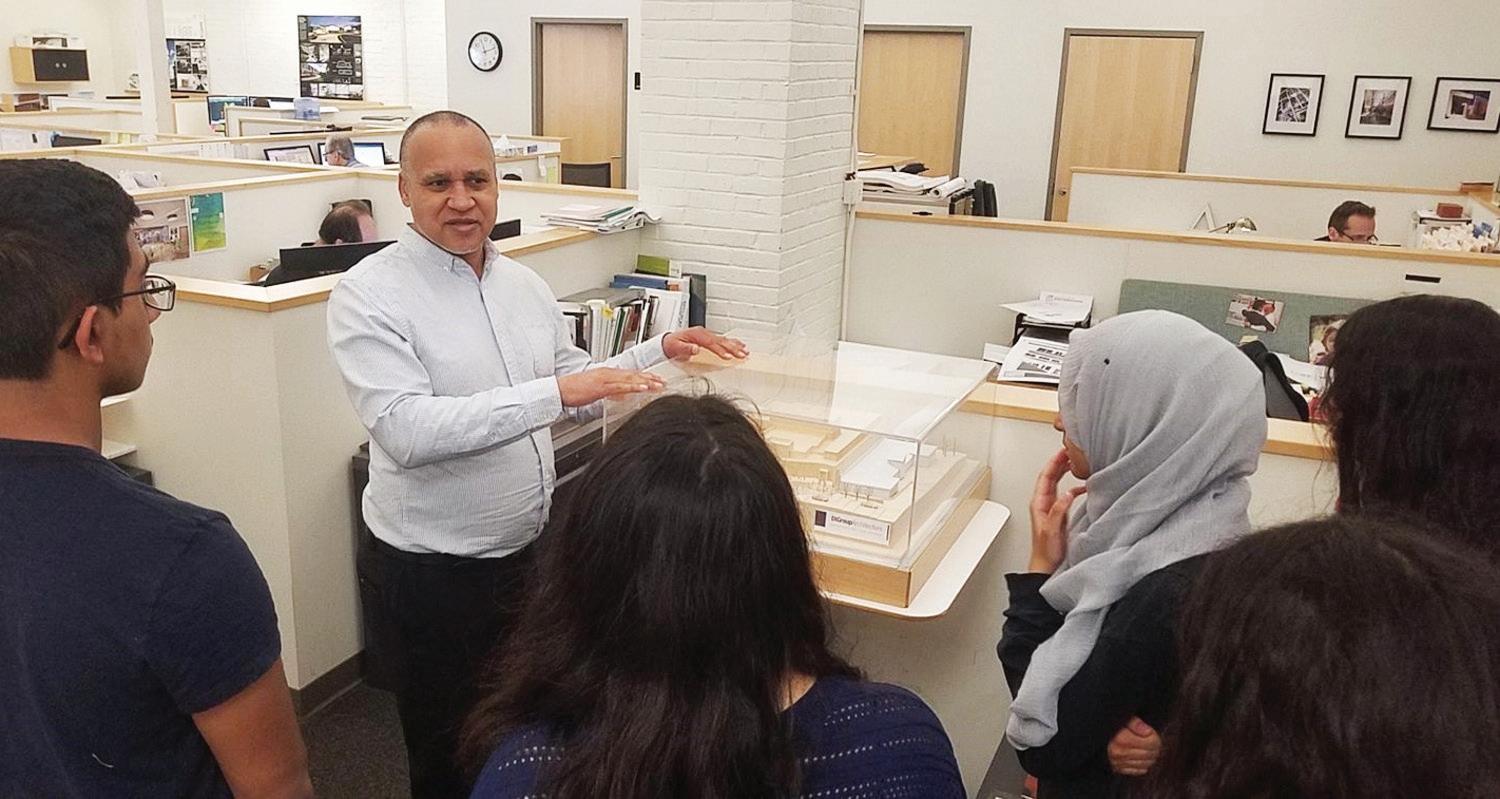
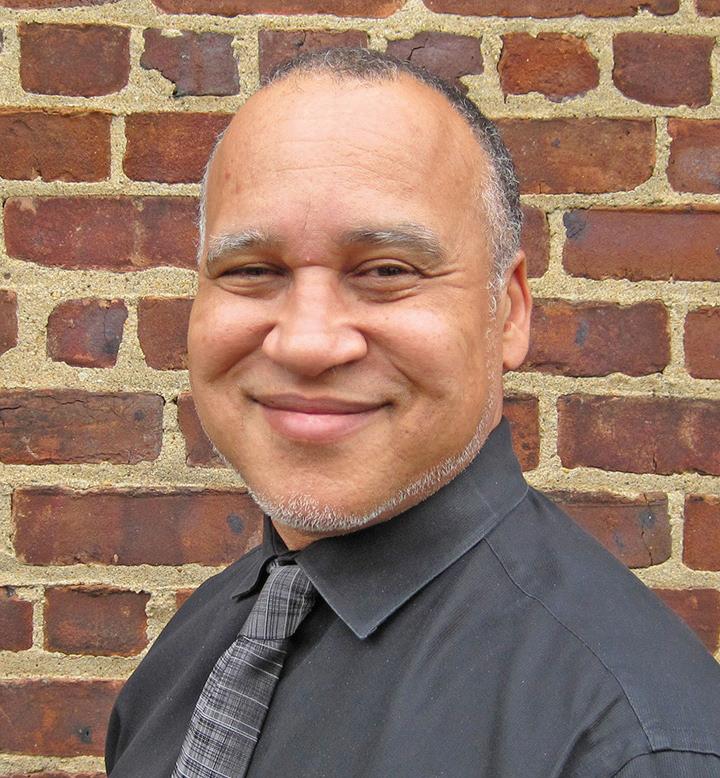
When DIGroup was founded, Vince became a principal in the company, serving as its Chief Financial Officer. DIGroup continued developing school projects, but also expanded its portfolio to include higher education, health care and senior living facilities, as well as urban redevelopment projects.
Infrastructure isn’t a big part of DIGroup’s portfolio, but “a lot of the types of facilities we design are in urban areas that are connected to the Infrastructure Bill, which covers transportation, utilities and fixing many of the historically underserved areas from an infrastructure standpoint,” Myers said, referring to H.R.3684 – Infrastructure Investment and Jobs Act. “We are also, as a minority business enterprise firm (MBE), registered with the Port Authority of New York and New Jersey, so we’re seeking opportunities through that platform, which is definitely tied to the Infrastructure Bill.”
In 2020, Myers became president and principal owner of DIGroupArchitecture. People around town who knew of his lineage weren’t surprised when that happened.
Vince said: “When I was emerging as a professional, I can’t tell you how many people said, ‘Wait, you have to be related to Harvey.’ There weren’t that many of us (Black men) in the profession to begin with. My dad earned a number of compliments and much respect. He wasn’t just an architect. He gave back to the community.”
Business is going well for DIGroup. Among its recent projects are the Union County, New Jersey, Government Complex and the UNITI
Cultural Center at Stony Brook University in Stony Brook, New York. Those projects, totaling $120 million and $10 million, respectively, represented DIGroup’s range of architecture, interiors and graphics services.
The Stony Brook job, completed in September 2021, supports nearly 100 cultural clubs and organizations. In preparation for the job, DIGroup did extensive research into universal themes of textile design, international festivals, and colorful food trucks for the 4,000-square-foot space, resulting in “a carefully curated, vibrant mix of multiculturally inspired organic structures, furniture, finishes and graphics,” according to a company news release.
For their efforts on Stony Brook, DIGroup was awarded the “Top Education ProjectSuffolk” by Long Island Business News in its 2022 Real Estate Architecture & Engineering competition.
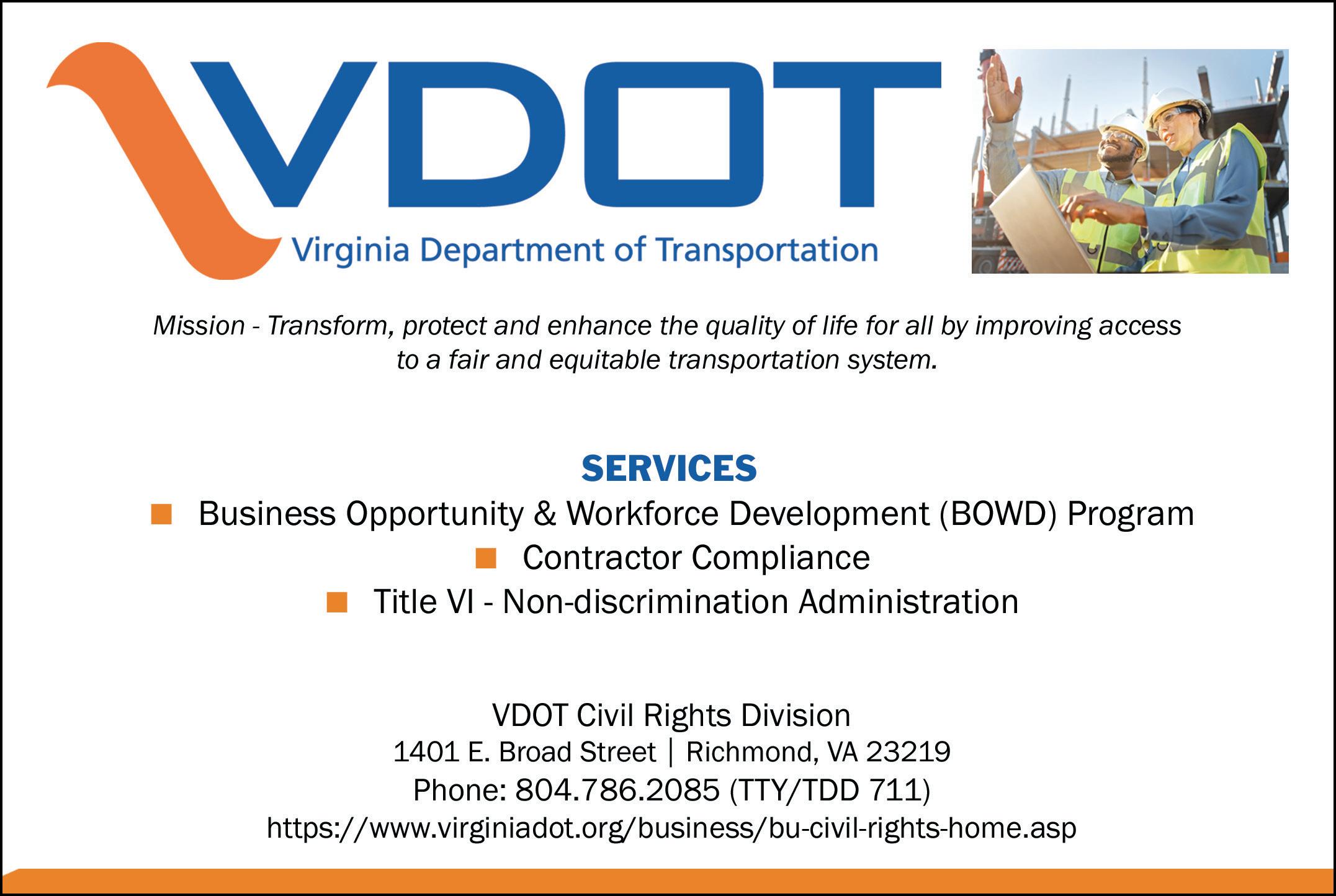
Myers said one key to his success has been connecting with people in key positions to provide access to tables where decisions are made and where contracts are awarded.
“Access to key decision makers is paramount, especially for MBEs,” Myers said. “Being good at what you do is not always a ticket that gets you work.”
A newspaper clipping of Vince Myers (right) and his father Harvey Meyers from the 1980s.
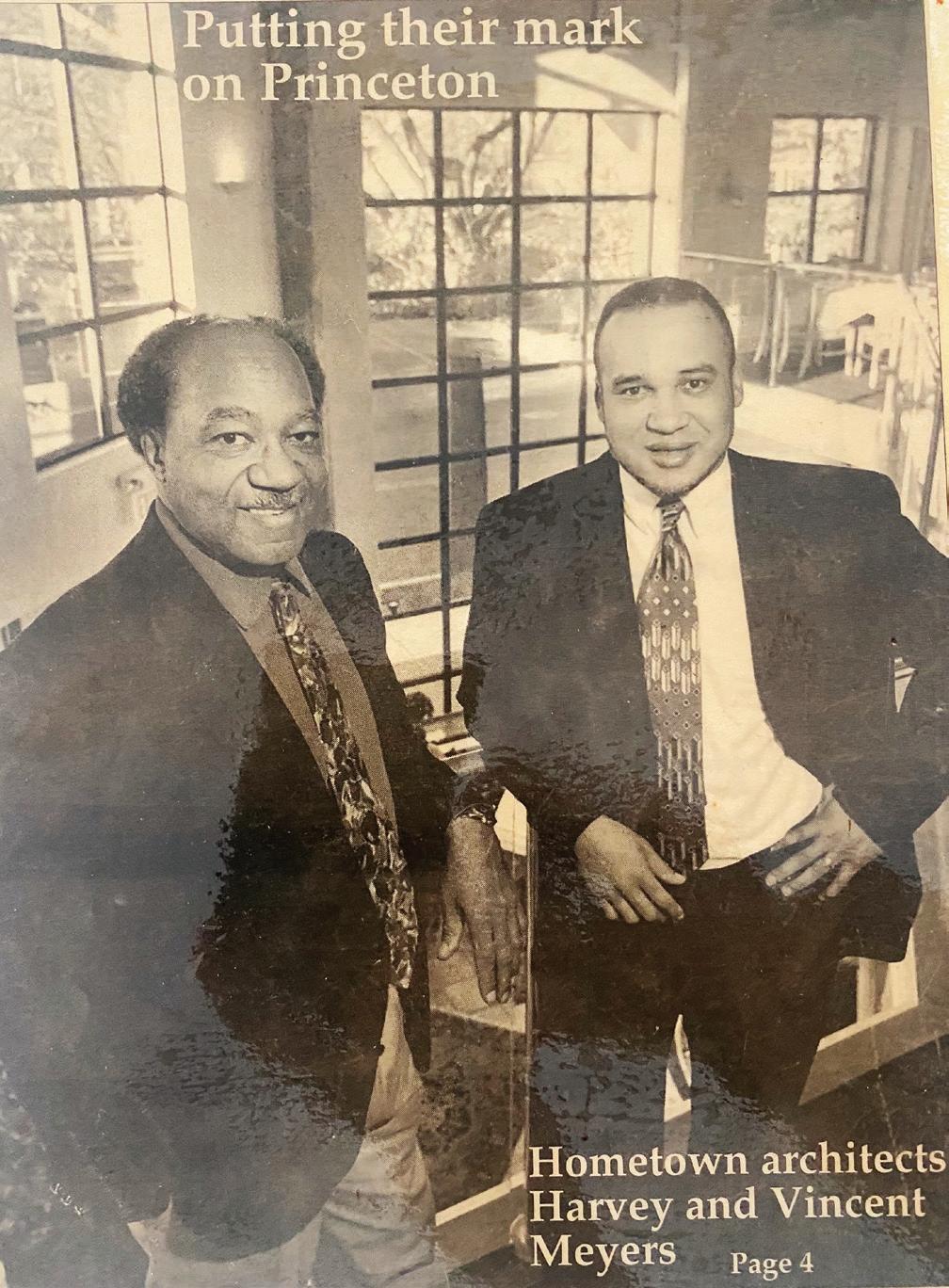


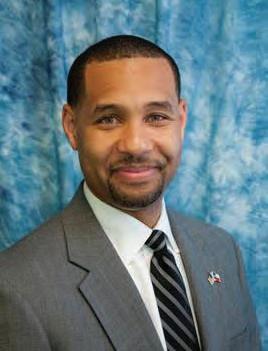
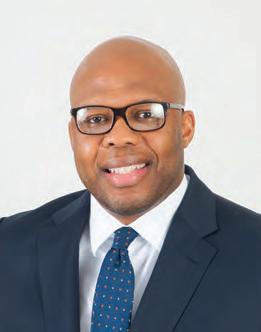
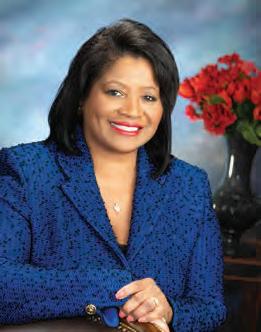
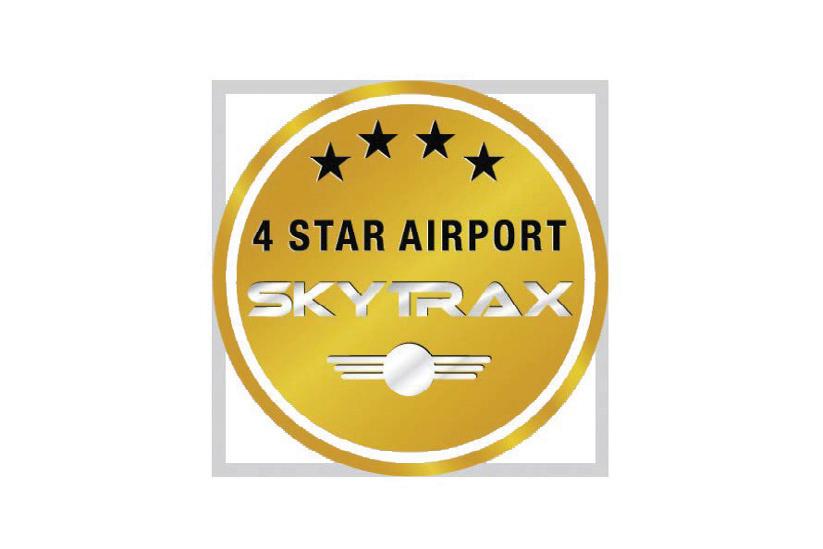
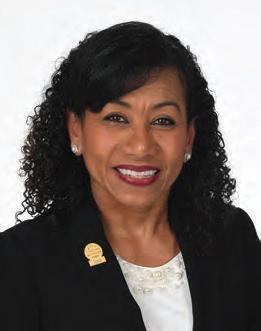
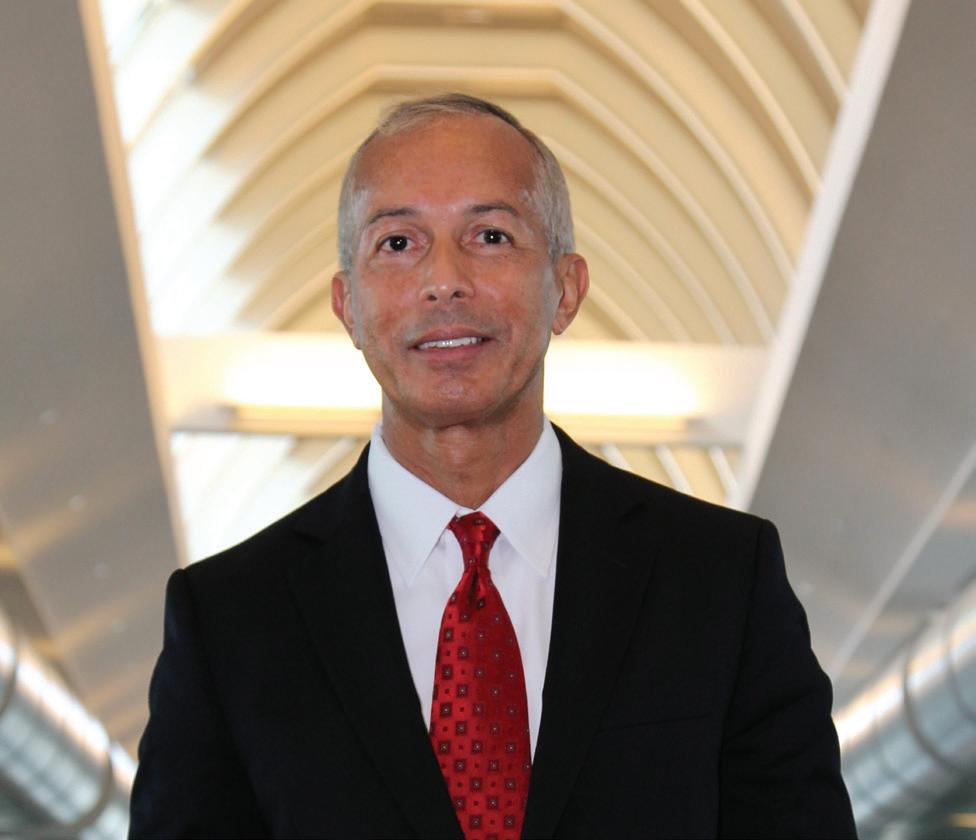 Mario Diaz
J’Maine Chubb Liliana Rambo Management Officer
Director of Aviation
Jason McLemore Deputy Assistant Director Rhonda Arnold Chief Community & Business Affairs Officer
Mario Diaz
J’Maine Chubb Liliana Rambo Management Officer
Director of Aviation
Jason McLemore Deputy Assistant Director Rhonda Arnold Chief Community & Business Affairs Officer
The Kansas City Area Transportation Authority (KCATA) operates bus and other public transportation services in the Greater Kansas City Region, serving more than 9.4 million passengers each year. KCATA is the largest agency of RideKC, a regional organization comprised of several public transportation agencies including Unified Government Transit, Johnson County Transit, IndeBus and KC Streetcar Authority.
As part of RideKC, KCATA is one of the leading public transportation agencies in the nation, having been honored by the American Public Transportation Association (APTA) as the top public transit agency in North America for midsize agencies. The agency earned the 2022 APTA Outstanding Public Transportation System Achievement Award.
In a press release following the award presentation, APTA President and CEO Paul P. Skoutelas said: “Over the past three years COVID has deeply affected transit systems across the country. One constant from my conversations during this time is that KCATA is always mentioned in discussions about leaders in equitable fare policies and diversifying mobility options. While facing a changing landscape as we return from COVID, it is also admirable to see they have recovered 80% of their pre-pandemic ridership. I congratulate you on this welldeserved award.”
Streetcar Authority and the City of Kansas City, Missouri to begin construction on the $351.6 million Main Street Extension of the KC Streetcar system. The project started construction activities in April 2022 with a 20.2% goal for the participation of Disadvantaged Business Enterprises (DBEs). The project is being administered by the City of Kansas City, Missouri, as the grant recipient; and city’s Civil Rights and Equal Opportunity Department established the DBE contract goal. This project will be the region’s largest transit project – and when completed – will positively impact transit throughout the region by extending the current line from Union Station, in downtown Kansas City, south approximately 3.5 miles to the vicinity of the University of Missouri –Kansas City. The project is funded with local and federal funding, and partly funded from the expanded Main Street Rail Transportation Development District. In January 2021, the project received $174 million from the U.S. Federal Transit Administration (FTA), the largest transit grant ever received in Kansas City, Missouri.
DBEs are actively working on the project, providing construction and non-construction
activities, including engineering and other professional services. As of September 2022, the KC Streetcar Constructors Joint Venture team, consisting of Herzog Inc. and Stacy & Witbeck Inc., has made DBE commitments of more than $50 million, and is more than halfway to achieving the DBE goal for the entire project. “We have two major transportation projects going on in this region, the Kansas City Airport project, and our KC Streetcar Main Street Extension project. We have many of our DBE firms working on these projects,” said KCATA DBE Program Manager Whitney Morgan.
The KC Streetcar Main Street Extension Project is approximately 20% complete and will open to the public in 2025. KC Streetcar Authority Executive Director Tom Gerend said, “The KC Streetcar Main Street Extension project will connect our city’s largest employment centers and elevate the function of our system from a downtown circulator to the spine of an improved regional transit system.”
KCATA, KC Streetcar Authority, the City of Kansas City, Missouri, and Port KC are currently planning an additional streetcar extension to connect downtown to the growing Berkley Riverfront, just north of downtown Kansas City along the Missouri River. The KC Streetcar Riverfront Extension project will extend the mobility and economic development benefits of the streetcar system
KCATA has continued to build upon this success in 2022 by partnering with the KC Architectural rendering of the KC Streetcar Main Street Extension currently under construction in Kansas City.

to a long-dormant area near downtown –sparking additional economic development and job creation.

The KC Streetcar Riverfront Extension will provide an additional mobility option for residents living in new residential housing along the riverfront and allow all Kansas Citians to use the streetcar to travel to the new KC Current Stadium, a professional women’s soccer stadium expected to open in 2024. “When added to the recently announced KC Streetcar Main Street extension federal funding, this project will complete the full River/Crown/Plaza transit spine as envisioned by our elected leadership many years ago,” Gerend said.
The Riverfront Extension project’s anticipated budget is $31.6 million and is fully funded through a combination of local funding and a $14.2 million BUILD grant from the FTA. KCATA selected Burns & McDonnell as Project Management Consultant and established a DBE goal of 23% for the PMC contract. Burns & McDonnell has partnered with four DBE firms as subconsultants, including Connico, Hg Consult Inc., and Taliaferro & Browne Inc. Planned DBE participation is 23.3% of the project management fees.
KCATA also selected HDR as design consultant and established a 23% goal for this portion of the project as well. HDR is teaming with five DBE firms including, Custom Engineering, Hg Consult Inc., Taliaferro & Browne Inc., TREKK Design Group, and Tsi Geotechnical, Inc.
The two streetcar projects offer an ideal environment for KCATA to implement improvements to its DBE and M/WBE Programs to increase the participation of diverse firms in transit opportunities. KCATA board members recently increased their engagement with the agency’s programs by recommending the development of a Procurement/DBE Subcommittee formed by a subset of board members and staff from the Procurement and Civil Rights Department. “We have a very supportive board that is interested in equity and inclusion, and wants to set DBE or M/WBE goals on all of our projects,” Morgan said.
KCATA leadership is making other strides to strengthen its diversity program. The agency created a new Civil Rights Department in June 2022 to establish a team of professionals dedicated to equity and inclusion within

the agency and with businesses seeking contracting opportunities. The newly created Director of Civil Rights position now reports directly to the Chief of Staff, whereas previously, DBE Program staff were positioned within the Grants Department.
The agency is also gearing up to hire a consultant to update its disparity study to
determine how the agency is progressing toward eliminating the gap between the availability of diverse vendors in the region and their contracting success with KCATA. Morgan said, “We have been working to revamp and upgrade our DBE and M/WBE Programs and we are starting to see results.”
The I-64 Hampton Roads Bridge-Tunnel in southeastern Virginia has long been one of the region’s most congested corridors. The existing 3.5-mile facility consists of two 2-lane immersedtube tunnels on artificial islands, with trestle bridges to shore. These tunnels opened in 1957 (current westbound lanes) and 1976 (eastbound lanes) and are approximately 7,500 feet long.
Traffic on these four lanes exceeds 100,000 vehicles per day during peak summer traffic.
The Hampton Roads Bridge-Tunnel Expansion Project will ease this congestion with the addition of twin 2-lane bored tunnels just west of the existing eastbound tunnel. Also, the 4-lane segments of the I-64 corridor in the cities of Hampton and Norfolk will be widened.

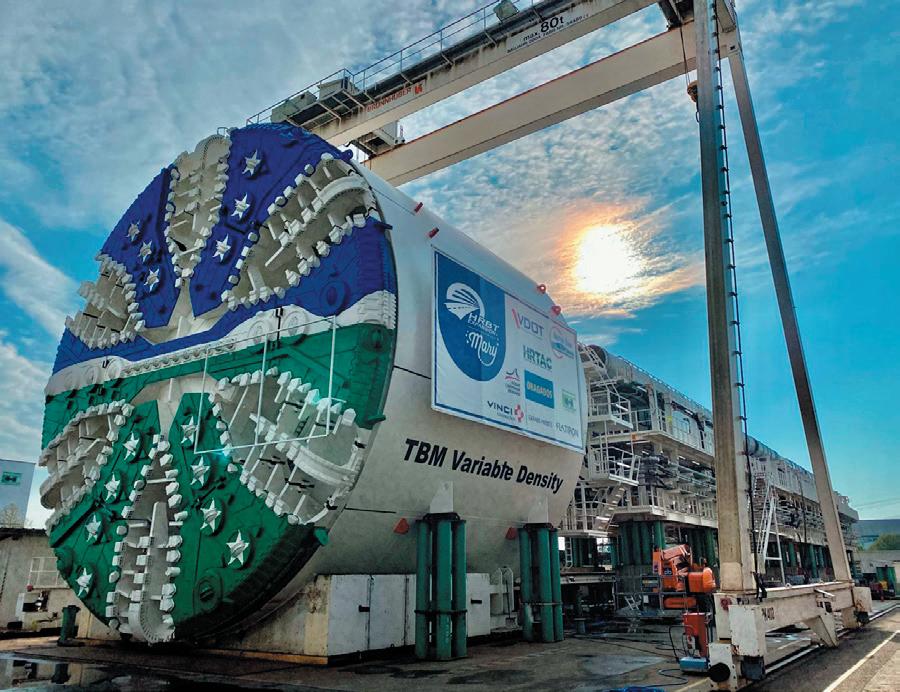
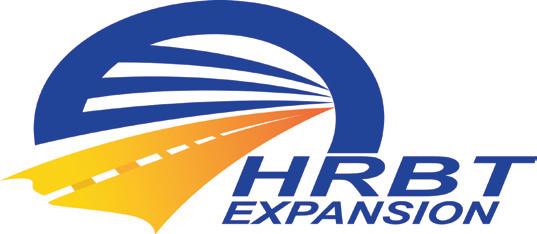
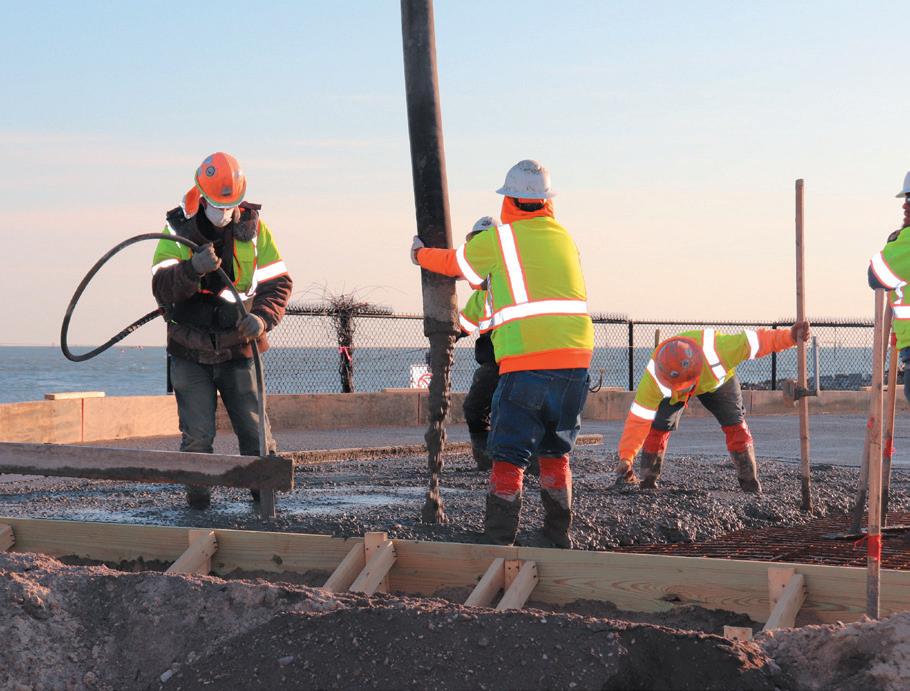

Being a DBE opened doors for Jones Worley. Producing outstanding work for clients has kept them open all these years.
Entrusted with high-impact projects, our team of perceptive, innovative and creative professionals has made Jones Worley a leader in marketing communications. We have:
Partnered with global-reaching Fortune 1000 corporations to produce their reports, strategic plans, case studies, marketing collateral, executive summaries, etc.
Worked with more than 50 transportation authorities across the country.
Launched the first 100-percent smart card in North America and guided more transit fare-collection programs than any other marketing agency in the U.S.
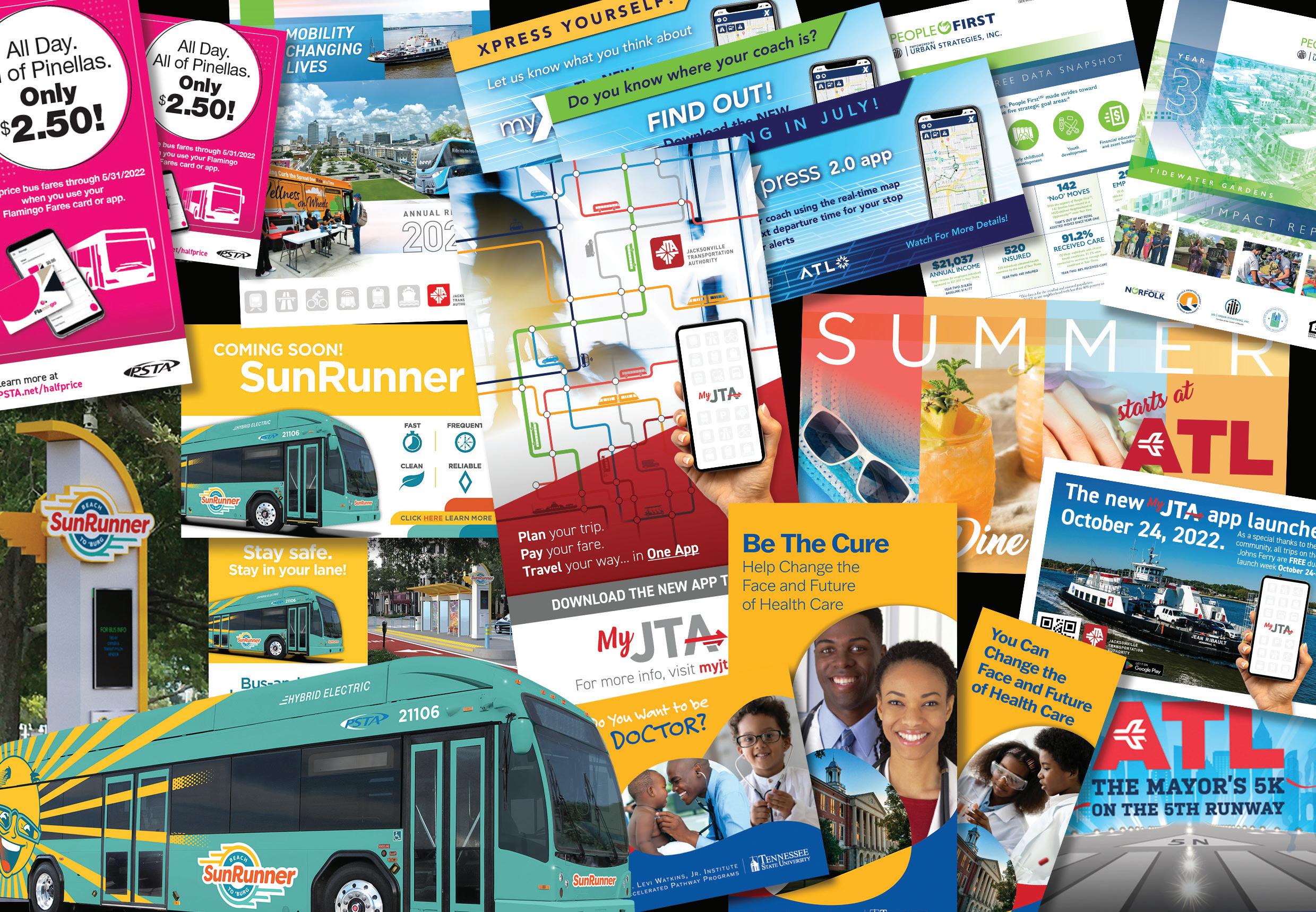

Led SPLOST infrastructure communications and outreach for two municipalities that won more than 70% voter approval.

Worked as a competitive national DBE prime consultant and sub-consultant to more than 150 design and engineering firms.
Been the only African-American, female-owned agency to brand and design the “look” of an Olympic Games.
Jones Worley. A small DBE firm with big-business expertise in strategic marketing communications, branding, outreach, campaigns, wayfinding, experiential graphics and signage design.
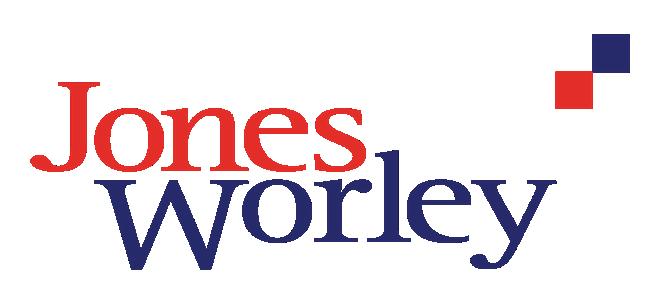
Most public agencies and larger corporations across America have a policy, program or regulation designed to increase Diversity, Equity and Inclusion (DEI) within the organization. These initiatives often include strategies to increase the hiring and promotion of people from underrepresented groups; and to increase spending with businesses owned by minorities, women, and other targeted populations.
However, research is showing that these efforts aren’t doing much to move the needle in both the employment and contracting space, even after numerous pledges of increased DEI efforts by many organizations, following the civil unrest after the George Floyd killing in 2020. It appears that much of the rhetoric since 2020 was long on talk, but short on action.
For instance, the Wall Street Journal reported in November 2021 that America’s 50 biggest public companies and their foundations collectively committed at least $49.5 billion for equity and inclusion activities since the civil unrest of May 2020. However, more than 90 percent of that amount — $45.2 billion — was allocated to areas they could benefit from such as loans or investments; and only $4.2 billion was for grants not creating a direct financial benefit.
These grant funds, which were to be disbursed over periods as long as a decade, represented less than 1 percent of the $525.6 billion in net income earned by the 50 companies in the most recent year, according to data from S&P Global Market Intelligence. So, while many people hoped that major organizations across America were truly committed to change, it appears that the many commercials, press releases and corporate statements lacked the
accountability to produce meaningful results.
Seattle-Tacoma International Airport (SEA) Managing Director Lance Lyttle recognizes the fallacy of empty rhetoric as he leads the one of the nation’s largest airports. Lyttle joined SEA in 2016 after holding senior leadership positions at the Atlanta Hartsfield-Jackson International Airport and the Houston George Bush Intercontinental Airport, two airports often recognized for their demonstrated commitment to Diversity & Inclusion. A hallmark of Lyttle’s leadership approach is leading by example, through modeling actions he expects from those under his leadership. “It’s not just symbolism, but substance that’s important. Things like mission and vision statements are good, and you need those, but they are symbols. Leaders must lead by example and produce results,” Lyttle said.
During his tenure at the airport, operated by the Port of Seattle, SEA has nearly tripled the number of minority and women businesses participating in airport contracts and more than doubled payments to M/WBE firms. The airport also has created innovative programs to increase Airport Concession Disadvantaged Business Enterprises operating in the airport terminal while consistently exceeding the airport’s ACDBE goal of 21.5%. “Results are the important thing for me. We want to set and achieve goals,” Lyttle said.
Lyttle has a direct and clear-cut vision for diversity and inclusion at SEA, “It is for the makeup of the airport and its contractor base to be a reflection of the region the airport serves,” he said. His vision extends through all levels of the organization from leadership to the staff working throughout the airport. Lyttle knows that achieving this vision takes a consistent and intentional approach that is communicated through the entire organization through policies and procedures employees must follow.

One practice SEA uses to ensure equity in hiring committees and contractor selection committees is striving to have employees serving on these committees to complete unconscious bias training. A related practice is striving to have members of the
committees selected from a diverse group of employees, consisting of peers with equal levels of authority in the organization. Lyttle said: “If a panel has the manager or director on a panel with people that report to them, that panel will bend towards the decision of the leader. We want our panels to be made up of a group of peers.”
Another policy for creating greater opportunities for businesses owned by minorities and women is ensuring that every contract that has federal dollars has a requirement for a Disadvantaged Business Enterprise (DBE) goal included in the contract language. “We created a grants manager to apply for federal grants and it has been extremely successful for us,” Lyttle said. The grants are typically used as part of major projects facilitating our DBE goals. This initiative increased the number of contracts available for participation by diverse firms
and increased the number of projects containing a contract goal requiring prime contractors to offer opportunities to DBEs.
These strategies have led to an increase the number of DBEs participating in Port of Seattle contracts during Lyttle’s tenure from 118 firms in 2016 to 344 firm in 2021. It also raised DBE participation from 5.2% of contractor payments in 2016 to more than 12% in 2021. Although this growth covers the entire Port of Seattle agency, the increase is primarily tied to an increased number of DBEs participating in SEA capital development efforts.
While Lyttle is pleased with the growth in opportunities for diverse firms, he says there is still more that needs to be done. The airport is currently working on a WMBE study (Women-owned and Minority-owned Business Enterprise) to review the airport’s program to identify barriers to entry for

diverse firms and to make recommendations for improvement. The recommendations should help SEA reach its current DBE goal of 15% soon.
SEA leaders know the first step to increasing contracting diversity is increasing the number of firms ready, willing and able to participate in procurement opportunities; and then increasing these firm’s level of understanding of how to do business with the airport successfully. SEA’s parent agency, The Port of Seattle, created the Small Business Generator Program (PortGen) in 2016 to achieve these two objectives. PortGen hosts quarterly outreach and training meetings to assist firms in navigating the registration and certification process – and to learn from staff from different areas of the agency
(From left) Airport Minority Advisory Council (AMAC) Chair Ricky Smith, AMAC President & CEO Eboni Wimbush, Director of the USDOT Office of Small and Disadvantaged Business Utilization

about business opportunities and how to do business at the Port of Seattle. The program offers guidance and information about becoming certified as a Disadvantaged Business Enterprise, Airport Concessions Disadvantaged Business Enterprise, and how to participate in the agency’s local Minority and Women Business Enterprise Program.

Another component of the agency’s outreach strategy is targeting efforts toward different segments of the surrounding community to attract a diverse mix of businesses. SEA places advertisements and notices in newspapers serving different minority publications and regularly participates in programs and events in communities across the region to connect with potential business partners.
In addition to these internal strategies, SEA recently partnered with the Airport Minority Advisory Council (AMAC), the Portland International Airport, Denver International Airport, and the Salt Lake City International Airport to host the AMAC S.O.A.R.S. (Sharing Opportunities & Resources in Aviation Summit) in August 2022. The program united major airports in the Pacific Northwest Region, regional airports, and corporations to provide an overview of current and upcoming projects, contract considerations and best practices for securing new business in the airport industry. The program was the first of its kind and allowed hundreds of businesses to attend one event to learn about opportunities at several airports, market their company to potential business partners, and network with local and national airport officials.
Lyttle expects business opportunities for diverse firms to grow with the ongoing expansion and modernization of the airport. SEA is preparing to start its S Concourse Evolution project to invest approximately $1 billion to modernize and upgrade the facility. The airport anticipates selecting the project manager/construction manager team
in early 2023 and beginning construction in 2025. The project will improve the structure and mechanical systems of the facility, add additional retail space for concessions, and modernize the building that was initially opened in 1973.
This major project will add to an already robust schedule of capital improvements planned during the near future to improve the domestic and airside facilities. Lyttle said: “Opportunities to do business are always at an airport because we are always improving to keep up with the growth in passengers. Our current capital plan is between $8 billion and $10 billion, so there are many opportunities for M/WBE firms.”
Lyttle said he is pleased with the progress the airport is making and believes the policies and initiatives taken to elevate Diversity & Inclusion throughout the airport are bearing fruit. He is especially proud of the success of the concessions program to expand opportunities to diverse groups previously absent from the airport. “We have created a number of firsts in our concessions program. We added our first Native American operator, our first Latino operator, and just added our first African-owned concession to the terminal using our Kiosk Program,” Lyttle said.
These successes show the results of the airport’s commitment to expanding opportunities. Lyttle credits the leadership he receives from the Port of Seattle Commissioners supporting his effort to create innovative and aggressive actions to bring meaningful change to the airport. He believes these actions are the airport’s true purpose in the Seattle region. Lyttle said, “What we do is run an airport, but why we do it is to achieve a higher moral purpose; and that is to increase economic growth and opportunity in this region, especially for the underserved community and disadvantaged businesses.”
As a recipient of federal funding from USDOT and local revenue, Charlotte Area Transit System (CATS) has made it a priority to reinvest in the local economy. Through the Disadvantaged Business Enterprise (DBE) program, businesses can fairly compete for USDOT-assisted contracts and participate in CATS projects that help connect communities to places, people, and each other.

Since 2015, CATS has confirmed $7,260,053 in awards and commitments to USDOT federally certified DBEs including projects such as the LYNX Blue Line Extension and the CityLYNX Gold Line. DBE certification:

• Opens the door for smaller businesses to compete with larger companies for contracts

• Allows CATS to work alongside DBEs and promote economic growth in the region
• Helps DBEs compete in their current marketplace or transition to other areas of business
Visit ridetransit.org and click on “Civil Rights” to learn more about the DBE program. Scan the QR code to see all available contract opportunities with the City of Charlotte.
The COVID-19 pandemic of 2020-2022 was a major challenge for non-profit organizations across the country as income producing and fundraising efforts were devastated by mandatory stay-at-home orders and restrictive health & safety precautions, which required organizations to cancel signature events, while simultaneously facing an economic recession compounded by corporations scaling back partnership support. This existential challenge caused the Conference of Minority Transportation Officials (COMTO) to pivot aggressively, like other organizations, to find creative ways to survive and emerge successfully from one of the toughest periods in recent history.
April Rai joined COMTO as President and CEO in December 2021 as the organization worked to rebound from nearly two years of transition and adjustment. In addition to working to survive during the pandemic, COMTO faced a transitional period after former CEO Brad Mims joined the President Biden Administration as Deputy Administrator of the Federal Aviation Administration. “The pandemic hit us hard, but thankfully we had strong interim leadership from Tara McDaniel and Dr. Gwendolyn Boyd to guide us through the challenging times,” Rai said.
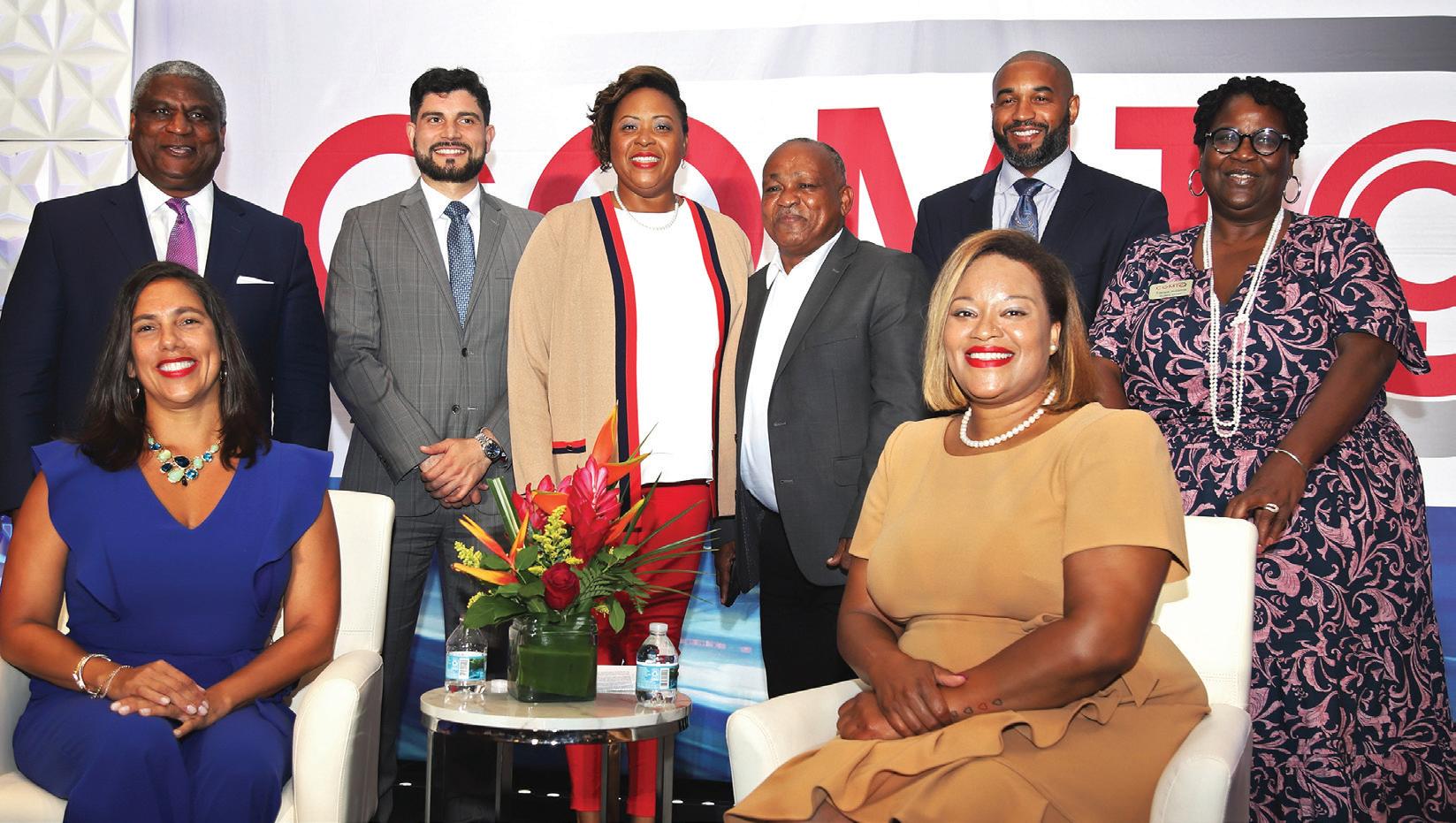
Transportation leaders attend COMTO’s 51st National Meeting and Training Conference. Front row (L–R): Veronica Vanterpool, Federal Transit Administration; Veronica Perry McBeth, Federal Transit Administration. Back row (L-R): Rodney Slater, Former US Secretary of Transportation; Morteza Farajian, Build American Bureau; April Rai, COMTO; Omer Osman, Illinois Department of Transportation; Eulois Cleckley, Miami Dade Department of Transportation and Public Works; and Tanya Adams, WSP and COMTO Board Chair.
Since assuming leadership, Rai has focused COMTO’s efforts on emerging from the pandemic on a sound financial foundation and to continuing the organization’s role as a leading voice for minority inclusion and advancement in the transportation industry. She believes the organization is moving ahead and well-positioned to increase its impact moving forward. “COMTO is stronger than ever. All our budget related goals around membership and partnership have been exceeded at this point in the year,” Rai said.
One reason for COMTO’s successful year is the overwhelming response to its 51st National Meeting and Training Conference held from July 9-11, 2022, in Fort Lauderdale, Florida. Conference registration far exceeded initial estimates as members from across the country resumed travel and came to the event to learn about the latest developments across the transportation industry and to network with peers in person after two years of virtual meetings. “We initially planned for 250-300 people, but quickly had to adjust after more than 750 registered for the conference,” Rai said.
The conference theme “Navigating the Future: Advancing Transportation Beyond Disruption” focused on the new opportunities and challenges facing the industry as agencies return to normal operations –excited about the future, but also facing growing challenges in their areas of workforce development and implementing the new Infrastructure Investment and Jobs Act, also known as the Bipartisan Infrastructure Bill. The conference brought together federal transportation officials, agency leaders and business professional to discuss best practices and emergent trends as the industry moves forward. “We want COMTO to always be
focused on solutions, showcasing examples of success and highlighting organizations that are doing it right, especially regarding issues with diversity and inclusion,” Rai said.
Using the successful conference as a springboard, Rai plans to build on key initiatives during the rest of 2022 and in 2023. One of the initiatives is expanding the number of COMTO chapters across the country. The first planning efforts for a North Carolina chapter started in August with an online seminar hosted by the North Carolina Department of Transportation and staff from COMTO’s national office. More than 50 potential chapter members attended the meeting and expressed interest in joining the chapter and becoming active members. Rai envisions other chapters coming on board in the upcoming months to add to the current 37 chapters located across the country.
COMTO will use its local chapters to expand its outreach and programming to transportation agencies in need of guidance and support of actions to increase Diversity, Equity and Inclusion in workforce development and Historically Underutilized Business (HUB) participation. “We want to promote the best of COMTO, including programs like our Missouri Model, which was started by our former President and CEO Julie Cunningham to engage agencies internally and the external community on large projects,” Rai said. She believes these types
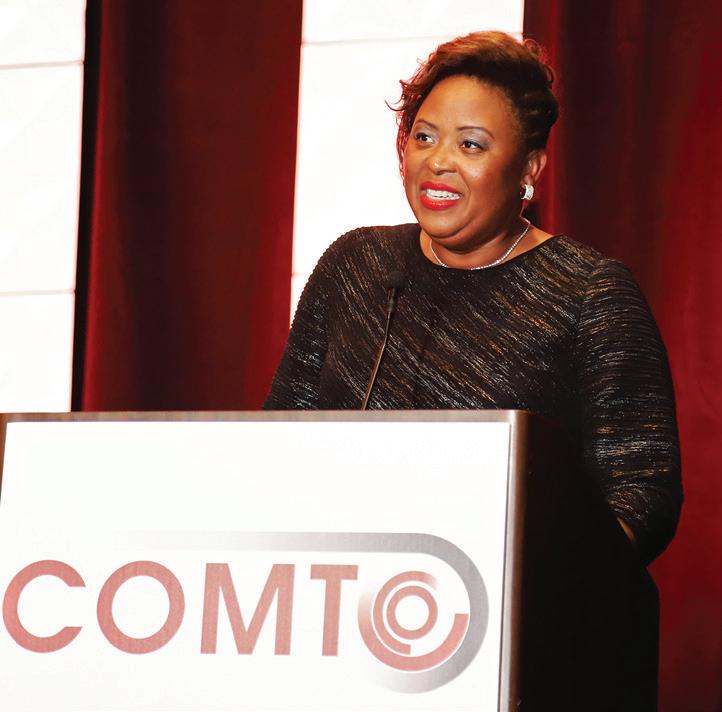
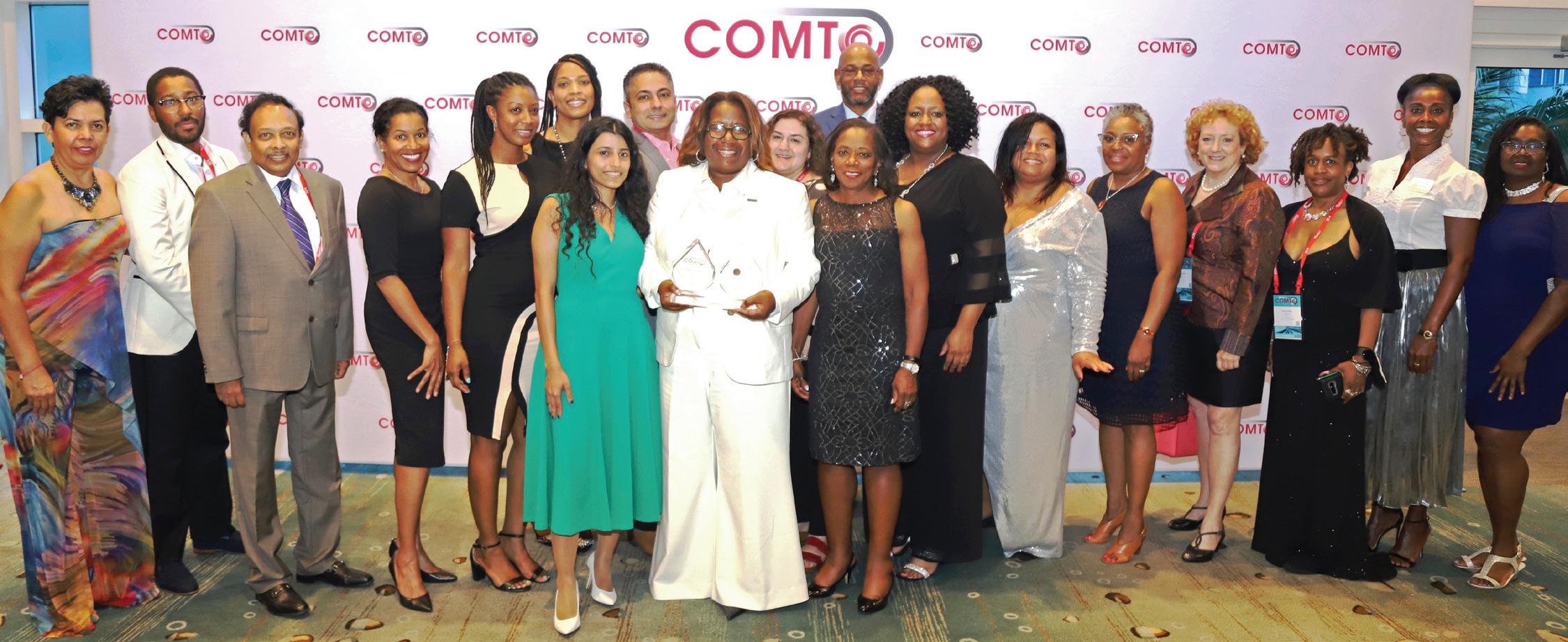
of services enable COMTO to leverage its 50 years of experience in promoting Diversity & Inclusion across the transportation industry to create meaningful change.
Rai is confident the organization can play a significant role in helping address the workforce challenges public and private agencies have resulting from the increasing retirements of industry professionals, fewer graduates entering the industry, and the great resignation occurring during the pandemic. “We are in a position to help organizations reach a diverse pool of workers that can address the workforce challenge they are facing and bring greater equity and inclusion across the transportation industry,” Rai said.
One strategy COMTO will use to address workforce challenges is expanding its Careers in Transportation for Youth (CITY) Internship Program. The program provides minority undergraduate and graduate students with an opportunity to gain professional and practical experience in the transportation industry. CITY Interns spend their summer vacation working in transportation agencies and with companies doing transportation business to gain exposure to the industry and work experience to enhance their education. “We want to expand this program to serve 1,000 students over the next five years; and to do that we will need $10-$15 million in funding. This will allow us to pay the interns properly, provide housing and transportation,” Rai said.
Helping Historically Underutilized Business, such as firms in the USDOT Disadvantaged Business Enterprise Program is another goal of COMTO. The organization is a consistent voice to federal and local legislators, and agency executives advocating for greater participation and inclusion in contracting opportunities. COMTO encourages members across the country to read the recent notice of proposed rulemaking for the Disadvantaged Business Enterprise and Airport Concession Disadvantaged Business Enterprise Program Implementation Modification and then provide written comments on the proposed changes. “We are collecting comments to
submit to USDOT, and members can send their comments to us or directly to the web portal,” Rai said.
COMTO is also advocating for other improvements to the DBE Program and other Historically Underutilized Business programs including greater requirements for prompt payments for work performed as prime or subcontractor, creating a national database of DBE firms to eliminate interstate certification challenges, and creating a DBE set-aside program like the SBA 8(a) Business Development Program.
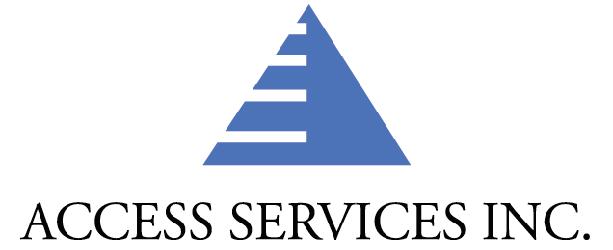

Rai said now is a critical time for COMTO’s voice to be loud and clear throughout the industry as the projects from the Bipartisan Infrastructure Law begin to roll out across the country. She and other COMTO leaders are encouraging federal administrators to establish an infrastructure czar in each state so that local chapters have a point of contact to monitor transportation projects funded by the law – and to become an equity resource in their local areas. Rai said: “This law is unprecedented funding, generational funding; but more money does not always mean equity. We must track this money’s distribution to make sure our DBEs and other Historically Underutilized Businesses are included.”
Suzanne Arkle, President/CEO of Zann and Associates, Inc. (third from right) celebrates being honored as the COMTO Historically Underutilized Business of the Year along with fellow COMTO members at the 51st National Meeting and Training Conference in Ft. Lauderdale, Florida.
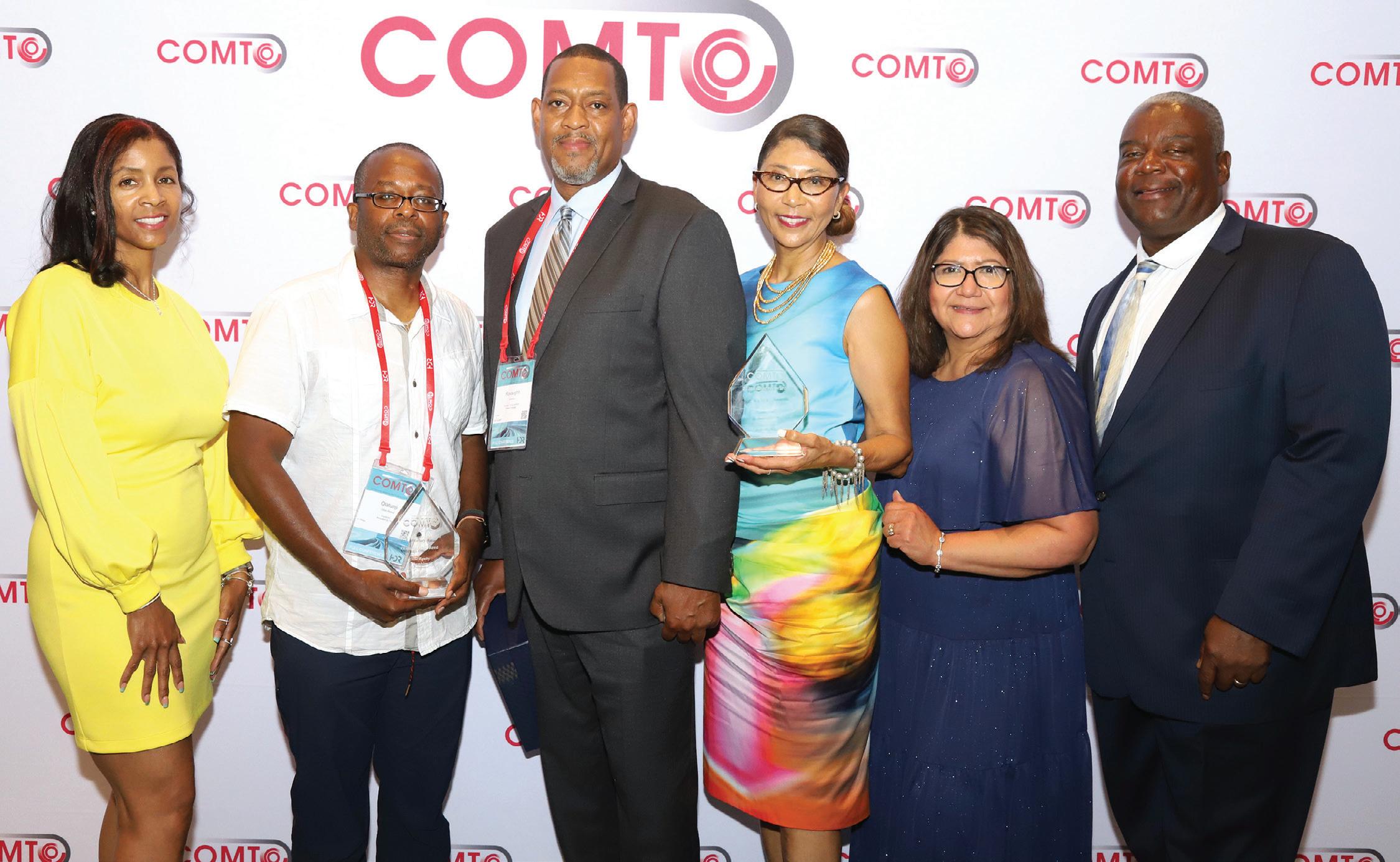
Lane Construction Corporation (Lane), the U.S. subsidiary of Webuild Group, has an extensive history of building major highway projects across the Carolinas and in the states of Florida, Virginia, Washington, California and Texas. Engineering News Record (ENR) ranked the company as the 16th largest transportation contractor in 2021.
Lane’s extensive operations on U.S. Department of Transportation (USDOT) funded transportation projects require ongoing outreach and contract compliance initiatives related to administering the federal Disadvantaged Business Enterprise (DBE) Program. Charlea Washington serves as Lane’s Compliance Manager and is the company’s DBE Liaison Officer. Her role requires leading the organization’s DBE Program administration and working closely with project managers to support and guide outreach and compliance activities on all projects. “The importance of my role is creating opportunities for small, diverse contractors, that they did not know existed; establishing, building, and maintaining relationships with the community and local agencies; and leading the training and development initiatives for our diverse contractors.”
In August 2022, the National Institute of Minority Economic Development (NIMED) recognized the work of Lane across the Southeast region at its Executive Networking Conference, held in Pinehurst, North Carolina. The company received the “Diversity Excellence” Award for strong outreach efforts and partnering with DBE firms to complete major infrastructure projects over the past several years. Lane has worked closely with one of NIMED’s core programs – The USDOT Office of Small Disadvantaged Business Utilization’s Small Business Transportation Resource Center - Mid-Atlantic Region (SBTRC).

Additionally, Lane has co-sponsored the USDOT Bonding Education Program along with the SBTRC for seven consecutive years since 2015. During this time, the program helped more than 120 firms learn about the surety bonding process and improve
their bonding capacity. Firms completing the program have grown their bonding capacity by $30.7 million and secured $13.9 million in construction-related contracts. “Lane has been a great partner since our first Bonding Education Program. They have been supportive and assertive in helping DBEs increase their bonding capacity and getting work on projects,” Mid-Atlantic Region SBTRC Program Manager Alyssa Mako said.
Lane partners with SBTRCs across the country and leverages the relationships to provide resources from its internal staff of Subject Matter Experts for subcontractors. Lane’s project staff also teach a variety of courses including Bidding, Estimating, Proposal Writing, Safety, Project Management and Compliance. These courses
provide valuable information to potential subcontractors and offers businesses a direct contact within the Lane organization.
In addition to partnering with SBTRCs to conduct outreach and training, Washington relies on internal colleagues leading each project to administer the day-to-day activities to ensure DBEs have meaningful opportunities on Lane projects. Washington ensures successful administration of the DBE Program by its project executives through maintaining ongoing communication with them and providing training to project staff to keep everyone abreast of DBE Program regulations and potential challenges on any given project.
Washington’s role also includes building relationships with local resources, community
groups and public agencies to understand the expectations of the communities where Lane plans to do business; and the expectations of clients regarding DBE Program administration and contract compliance. “Relationships are extremely important to any business, internal and external! I like to be intentional by being compliant with the agencies, attending and participating in community activities, and researching initiatives that are in line with our business operations,” Washington said.
Lane’s extensive number of major projects offer significant subcontracting opportunities to DBE firms. Some of these firms go on to build ongoing relationships with Lane project staff and first tier subcontractors. Lane will continue its efforts in the South Atlantic Region to keep pace with ongoing projects (including tunnel work) with a total contract value of more than $2 billion in North Carolina, South Carolina, Washington D.C. and Virginia. Some of the projects include a $441 million 495 Express Lanes Northern Extension (NEXT) project in Northern Virginia, and a $181 million I-85 Widening Phase III project in South Carolina. Additional projects in North Carolina include a $346 million I-440
Widening project, a $260 million I-77/I-40 Interchange Improvements & Reconstruction project, a $403 million Lane Blythe JV project to Complete I-540, and a $236 million project to widen I-40 26 miles from I-85 in Orange County to the Durham County Line. PullenBoy Hauling (PullenBoy) is a Raleigh, N.C. based DBE firm that has found success in building a relationship with Lane as a subcontractor. PullenBoy won its first major

hauling contract with Lane Construction in 2021 working on the NCDOT Complete 540 project. The husband-and-wife team of Jarvis and Dannesia Pullen began building a relationship with Lane project staff while working as a second-tier hauler on the NCDOT I-440 Beltline Widening project. PullenBoy is performing well on the contract and made a positive impression with Lane project managers.
Based on this experience, Lane estimators reached out to PullenBoy to request a quote for the Complete 540 project, a large project to complete the final portion of the Raleigh outer belt. PullenBoy submitted a quote and received a $3.5 million contract to provide hauling services. “Although we were not as large as some of the other companies bidding on the project, Lane gave us a chance and were willing to work with a smaller company. The project is going extremely well, and it has been a great experience so far,” Dannesia Pullen said.

Washington believes these types of opportunities is what the DBE Program is all about. “A successful DBE working with Lane is a DBE who understands that the program is a steppingstone to greater things,” she said. Washington also encourages all contractors to operate with a holistic, intentional approach and gain understanding of business operations from the field to the back office. She believes this approach will yield greater opportunities in growth and development.
She said: “At Lane we take the DBE regulation seriously; however, we also know that not all contractors have the resources to sustain their business operations. This is why we partner with the SBTRCs, the governing agencies, and local organizations to provide additional resources to help them succeed.”





In July, the United States Department of Transportation (“USDOT”) issued its longanticipated notice of proposed rulemaking (“NPRM”). The proposed changes to the regulations seek to modernize and strengthen its current Disadvantaged Business Enterprise (“DBE”) and Airport Concession Disadvantaged Business Enterprise (“ACDBE”) Programs. The proposed changes are available for review on the FederalRegister.gov website. Proposed changes impact some of the most important areas of the programs including personal net worth (“PNW”), counting, certification, reporting, and ACDBE administration. Comments must be submitted by October 31, 2022; and will be posted without change to www.regulations.gov, including any personal information provided.
The proposed changes cover nearly every aspect of the DBE and ACDBE Programs. Here
Colette Holt (left) and Joanne Lubartare the proposals with the broadest impact.
• Adjusts the current PNW cap of $1.32M to $1.60M.
• Adds retirement assets as a third exclusion in addition to equity in the applicant or certified firm and equity in the primary residence.
• Removes any consideration of state marital laws or community property rules when calculating the firm owner’s equity in the primary residence.
• Adds “transportation related” work to the definition of the DBE. This makes recent
institutional guidance into a regulatory requirement.
DBE directories:
• Directs that they be enhanced with essential information about the availability and capacity of DBEs and ACDBEs to perform USDOT assisted work (e.g., capability statements, bonding coverage, equipment capability, state licenses held) to serve as marketing tools.
Threshold for Federal Transit Administration (“FTA”) DBE compliance:
• Only FTA recipients who receive planning, capital and/or operating assistance that will award prime contracts exceeding $670,000 in FTA funds in a Federal Fiscal Year would be required to administer a DBE Program.
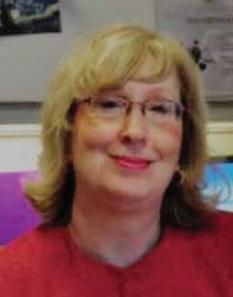
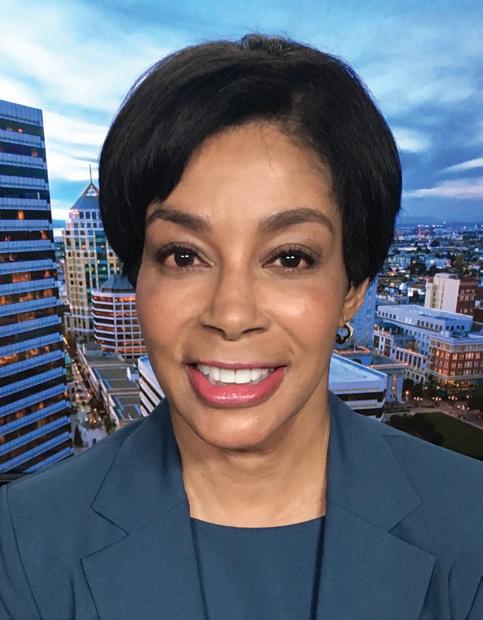
• Recipients would revise their Uniform Reports with additional data fields that include such information as ethnicity, DBEs decertified for excess gross receipts beyond the relevant size standard, and the number of DBEs listed at the time of commitment and replaced during the life of the contract.
• Limits the total allowable credit for a prime contractor’s expenditures with DBE suppliers (manufacturers, regular dealers,
distributors, and transaction facilitators) to no more than 50% of the contract goal. Exceptions are allowed on a contract-bycontract basis with operating administration approval.
• Continues to credit 60% of the cost of suppliers towards the contract goal and recipient’s overall goal if the DBE meets the regular dealer requirements. Rather than eliminating the regular dealer concept that many recipients and contractors view as outmoded, the NPRM would add a requirement that the recipient establish a system to determine, prior to award, that DBE suppliers meet the fundamental characteristics of a regular dealer. Sixty percent is appropriate when all or a major portion of the supplies are provided from inventory.
• Drop shipping from manufacturers is authorized with distributorship agreements, allowing 40% percent credit for the cost of materials.
• Primes responding to proposals must submit an open-ended DBE Performance Plan with the proposal. The recipient would monitor the prime’s adherence to the plan throughout the life of the contract to evaluate good faith efforts.
• Retires the key words “real, substantial and continuing” related to ownership and replaces them with what makes “reasonable economic sense” to the certifier.
• Shifts the focus from the actions and experience of the non-disadvantaged participants regarding control to those of the socially and economically disadvantaged owner (“SEDO”). The proper inquiry would be whether the SEDO controls the firm through managerial oversight, revocable delegation of authority, and critical and independent decision making.
• Applicant firm must have operations in the types of business it seeks to perform as a DBE prior to applying to the program. The NPRM carves out an exclusion for the ACDBE applicant since many prospective ACDBEs have no operations before obtaining a contract.
• Eliminates the current Appendix E determination in favor of less prescriptive rules in individualized certification determinations. USDOT has concluded that the current assessment is too stringent and nearly impossible to meet.
• Removes the six-factor checklist-type requirements for assessing whether an individual has the ability to accumulate substantial wealth and is no longer economically disadvantaged. The proper query is whether a reasonable person would consider the owner economically disadvantaged based on indicators such as lavish lifestyle, income or assets of a type or magnitude inconsistent with economic disadvantage.
• Expedites interstate certification and calls for reciprocity. A certifier would have 10 business days after receiving proof from a firm that it is a certified DBE and/or ACDBE to verify that the firm is certified and approve the interstate application.
• In-state certification applications should be processed faster. Under the current rule, a UCP certifier must make an initial certification decision within 90 days of receiving all required supporting documentation from the applicant firm and may use a onetime extension for an additional 60 days if circumstances warrant it. Under the proposed language, the reviewer would only be allowed an additional 30 days.
• Amends the summary suspension process via changes in the treatment of death and
incarceration as suspension events. It would add as a mandatory suspension condition clear and convincing evidence of the DBE’s involvement in fraud or other serious criminal activity.
• Incorporates virtual practices permitted by USDOT in response to the COVID-19 pandemic. It authorizes virtual onsite visits for applicant firms as well as for periodic updated visits. It also encourages certifiers to work with applicants to cure defects that can be corrected swiftly (i.e., revising generic bylaws). This also applies to removal of certification, which requires a good cause finding based on eight enumerated grounds. The certifier must offer the firm an opportunity to cure eligibility defects within 30 days related to changes in certification since the firm was admitted to the program.

• Virtual informal hearings on certification matters are encouraged. It also would require that the SEDO respond to questions about control during the hearing.
• Adds the requirement of a small business element to the ACDBE Program (the element has been a regular part of the DBE Program). It would also require an “active participants list” to provide recipients with data that is as accurate as possible about the universe of ACDBE and non-ACDBEs who seek concession opportunities for use in helping recipients set overall goals for car rentals and concessions other than car rentals.
•
•
•
•
•
•


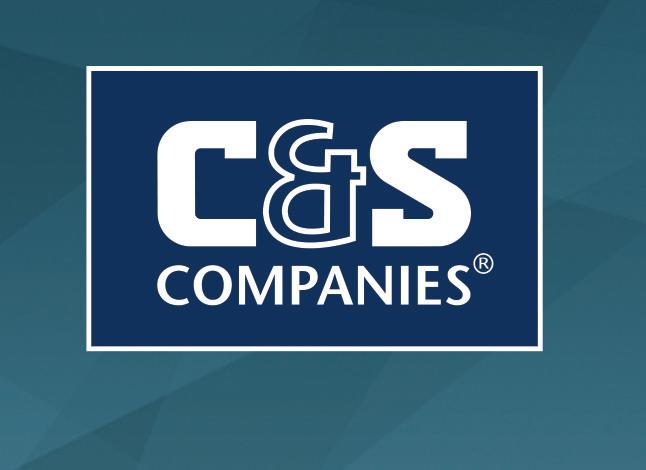


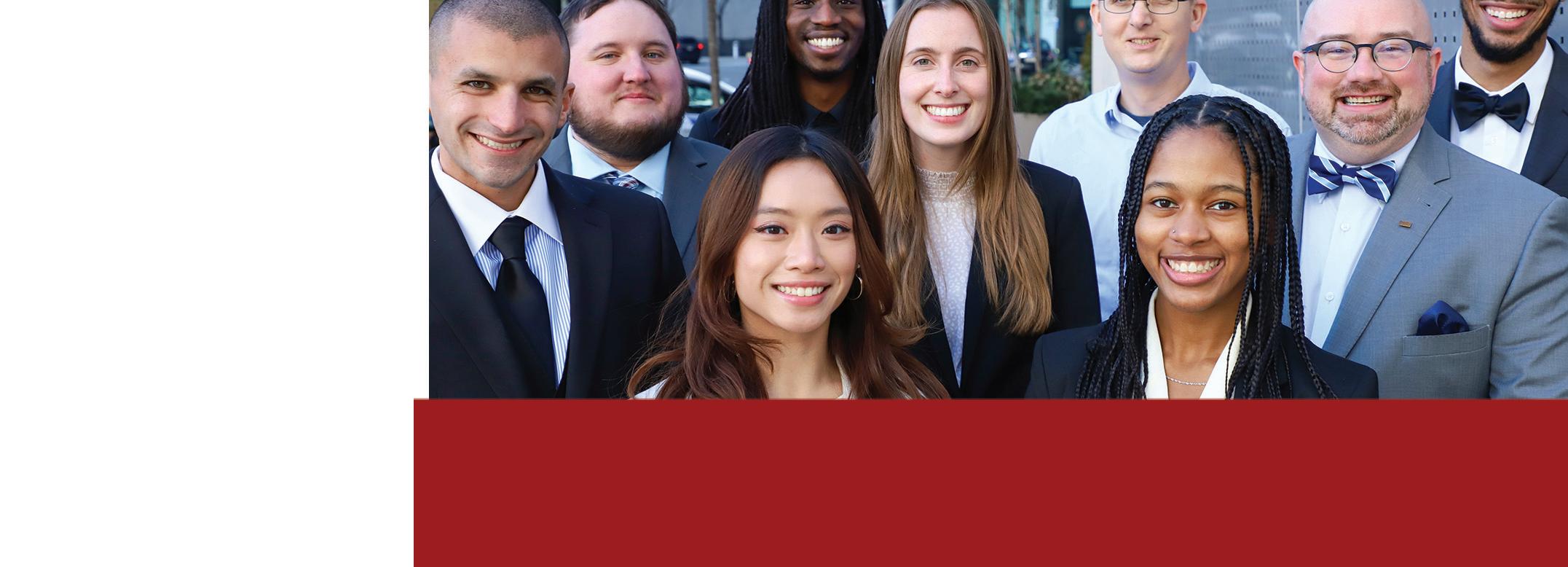

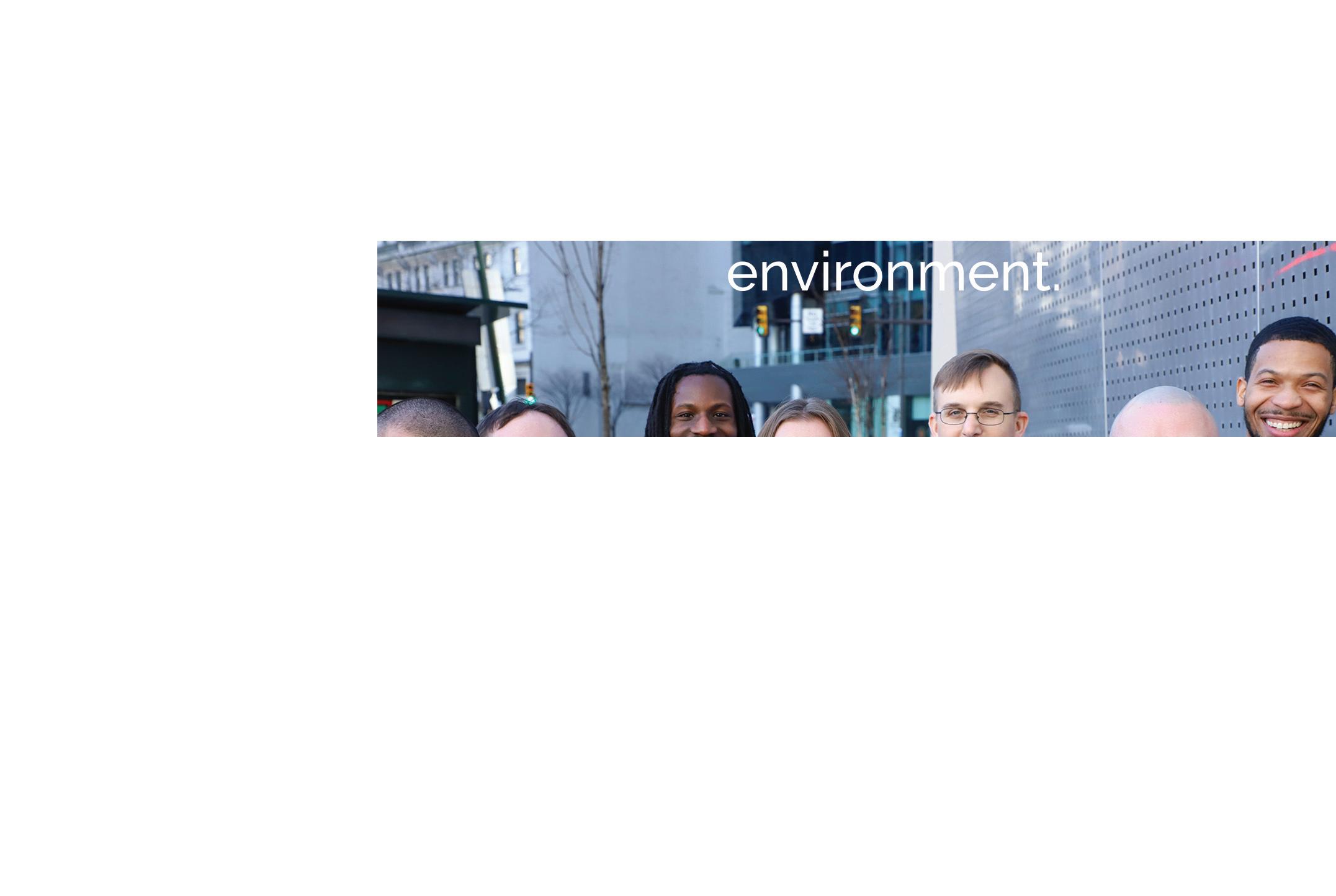













































































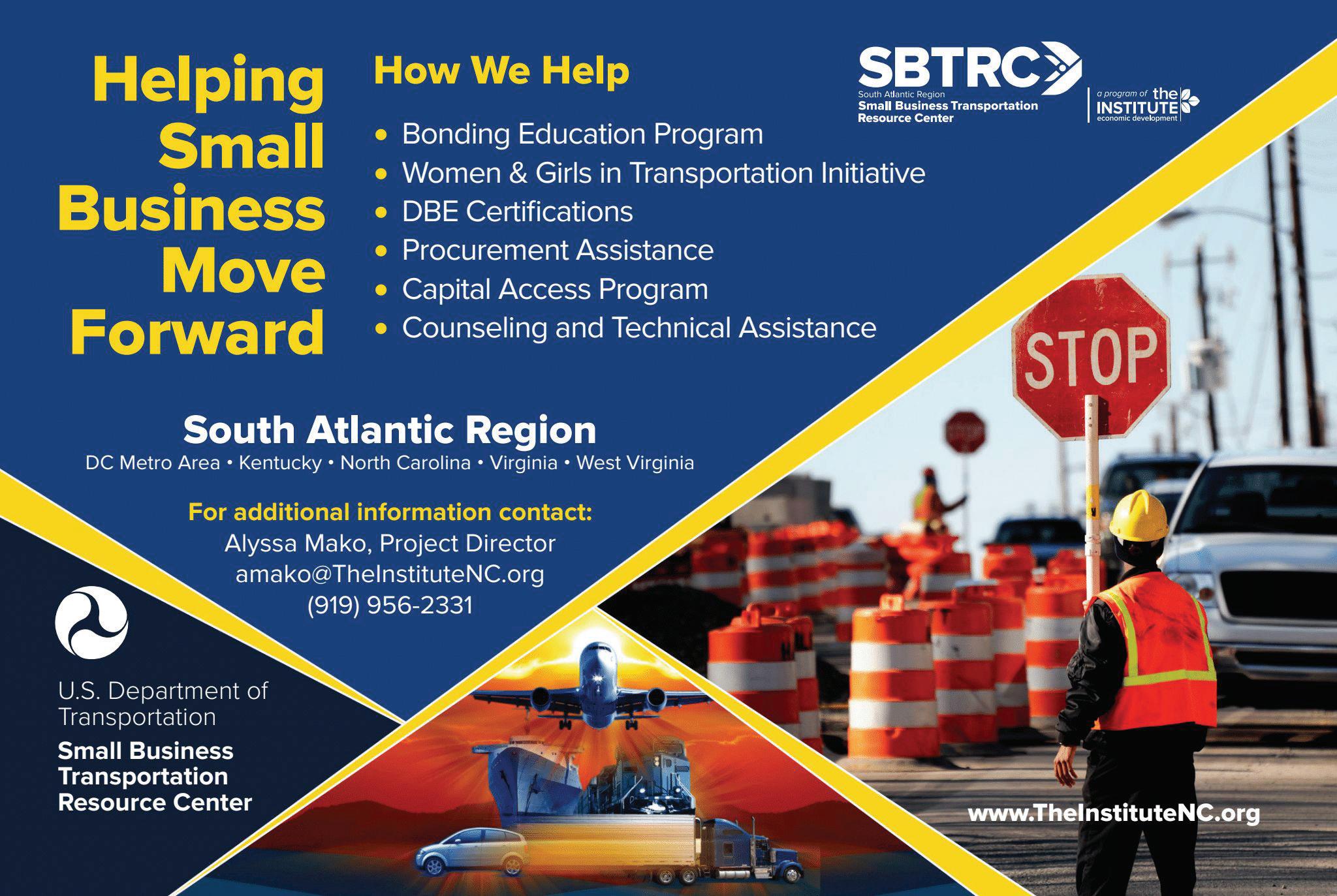
Page 38: Access Services, Inc.
Page 15: Austin Commercial
Page 48: B2Gnow
Page 44: C&S Companies
Page 35: Charlotte Area Transit System (CATS)
Page 20: Chicago Transit Authority
Page 40: City of Columbia, South Carolina
Page 26: CKL Engineers
Page 44: Colette Holt & Associates
Page 2: Corporate Environmental Risk Management (CERM)
Page 21: GCAP Services
Page 22: Griffin & Strong PLLC
Page 30: Hampton Road Bridge Tunnel
Page 45: Hill International
Page 27: Houston Airports
Page 31: Jones Worley
Page 19: Ken Weeden & Associates
Page 3: Lane Construction Page 7: Messer Construction Page 11: Michigan Department of Transportation
Page 5: PR PROS, LLC
Page 45: Southern Atlantic Region SBTRC
Page 25: Virginia Department of Transportation Civil Rights
Conference of Minority Transportation Officials (COMTO)
Celebrating Women Who Move the Nation March 15, 2023; Washington, DC https://comto.org/programs-events/
Women’s Business Enterprise National Council 2023 WBENC National Conference March 20-23, 2023; Nashville, Tennessee https://www.wbenc.org/conference/
American Association of Airport Executives (AAAE)
95th Annual AAAE Conference & Exposition June 3-5, 2023; Denver, Colorado https://www.aaae.org/
Airport Minority Advisory Council (AMAC)
38th Annual AMAC Airport Business Diversity Conference June 10-14, 2023; San Antonio, Texas https://www.amac-org.com/events/
National Association of Women in Construction (NAWIC) 52nd National Meeting in Training Conference July 2023; Anaheim, California https://comtonational.org
National Association of Women in Construction (NAWIC) 68th Annual Conference August 9-12, 2023; Portland, Oregon https://www.nawic.org/annual_conference
American Contract Compliance Association (ACCA) 2023 ACCA National Training Institute August 14-19, 2023; Memphis, Tennessee https://www.accaweb.org/
American Public Transportation Association (APTA) TRANSform Conference & EXPO 2023 October 8–11, 2023; Orlando, FL https://www.apta.com/conferences-events/


